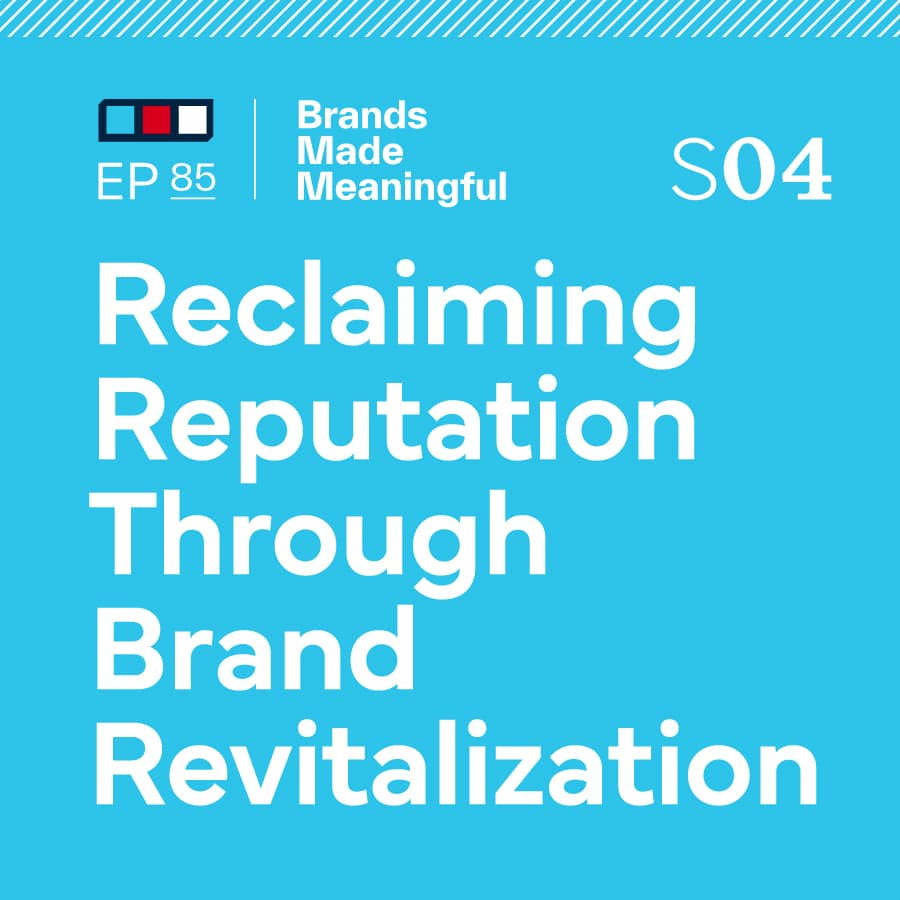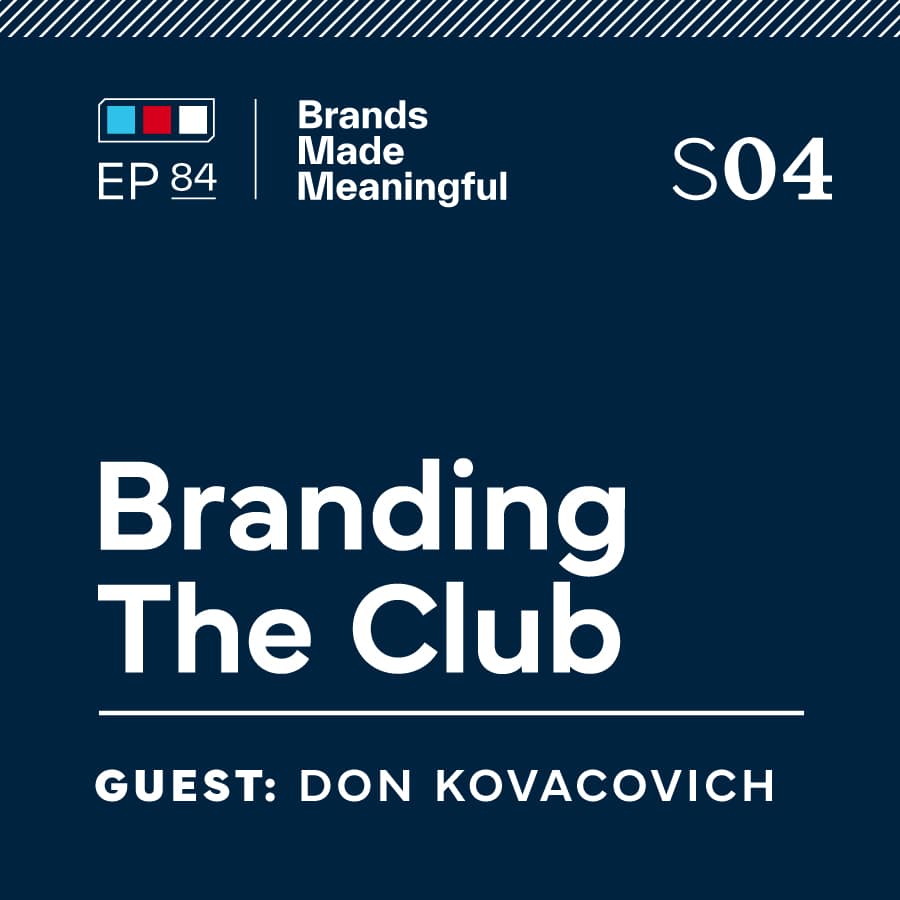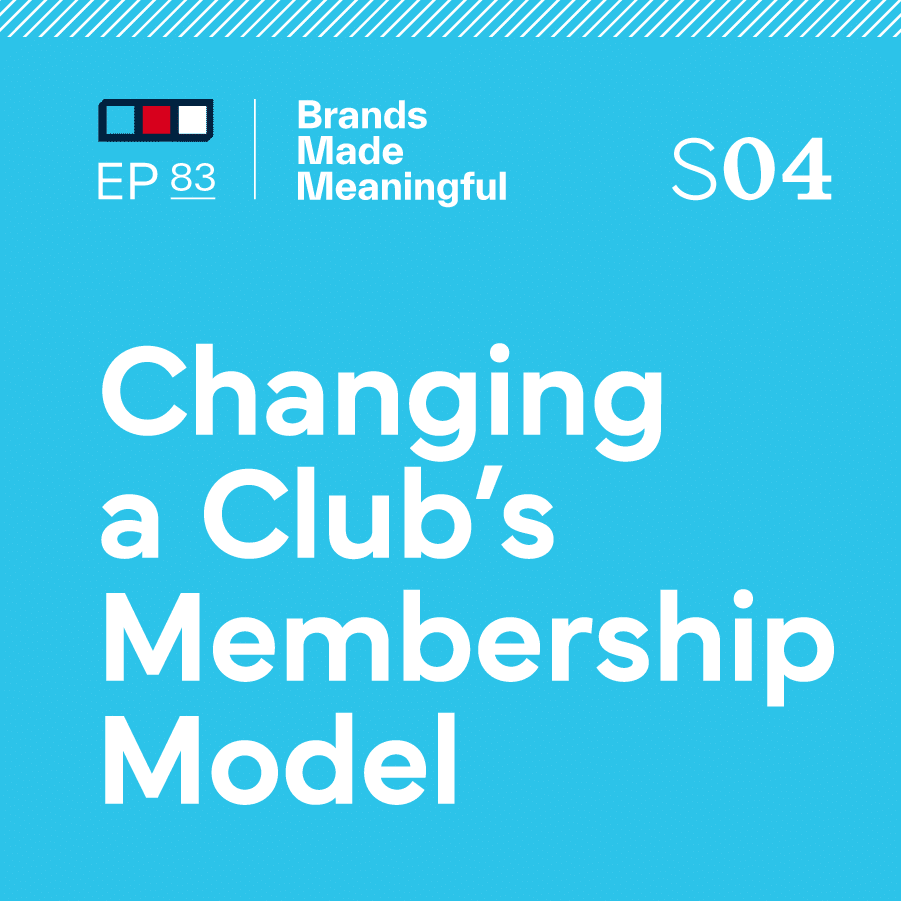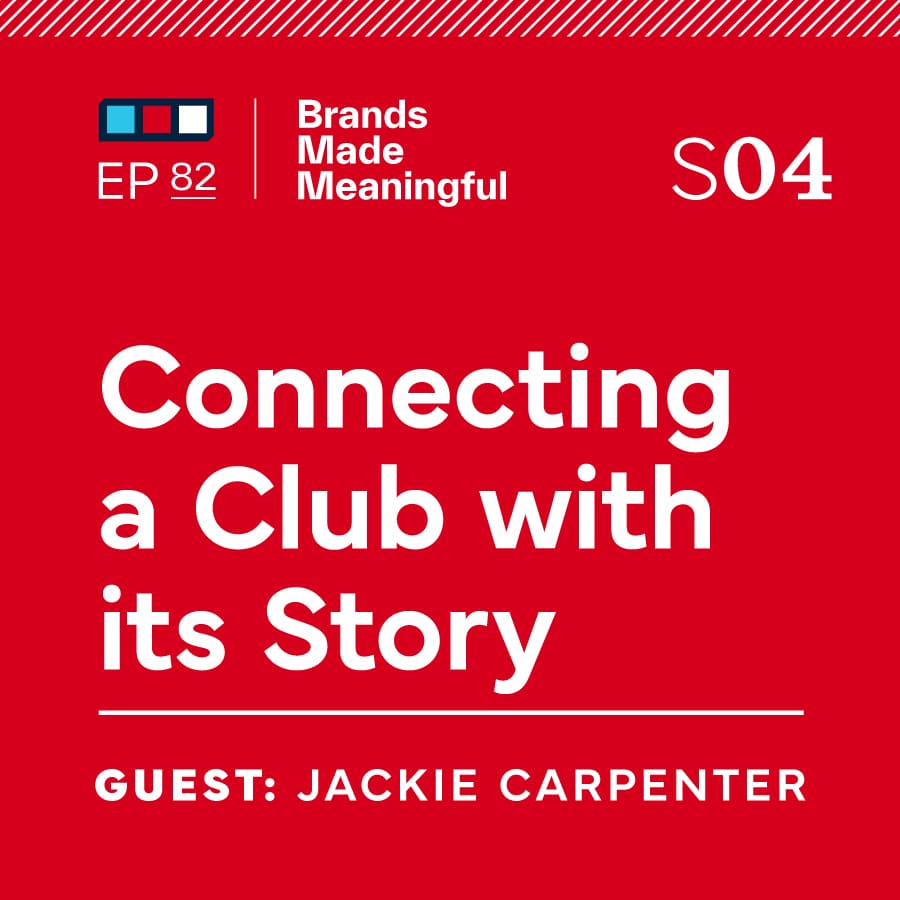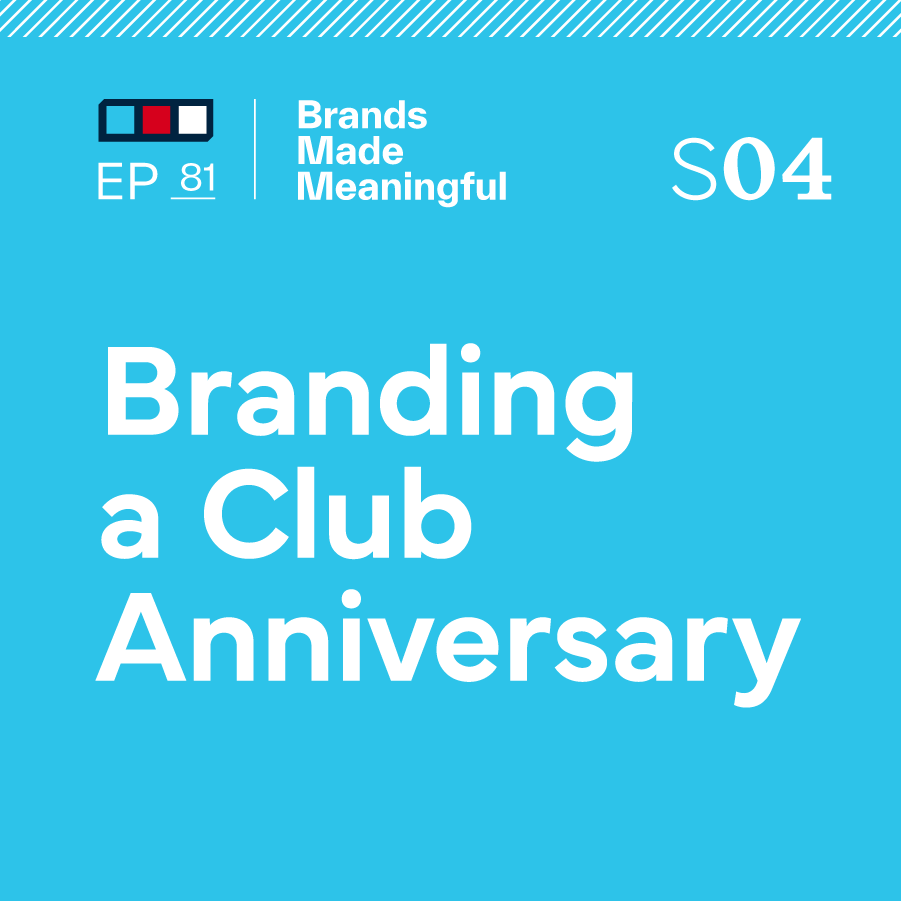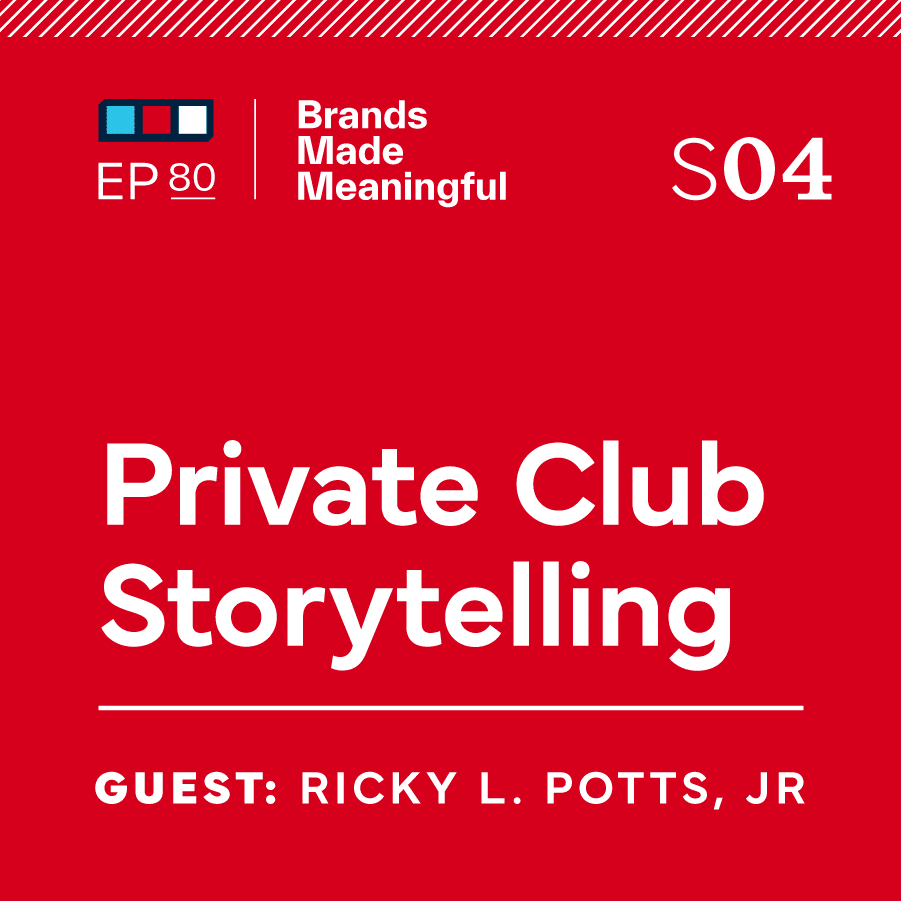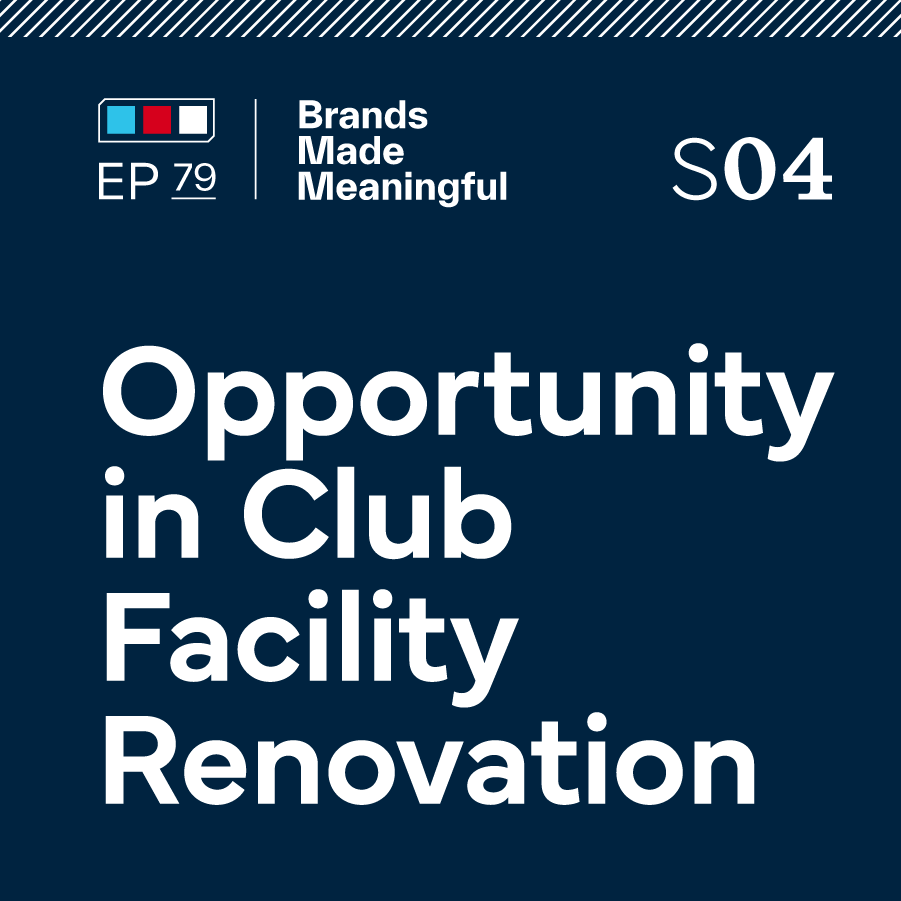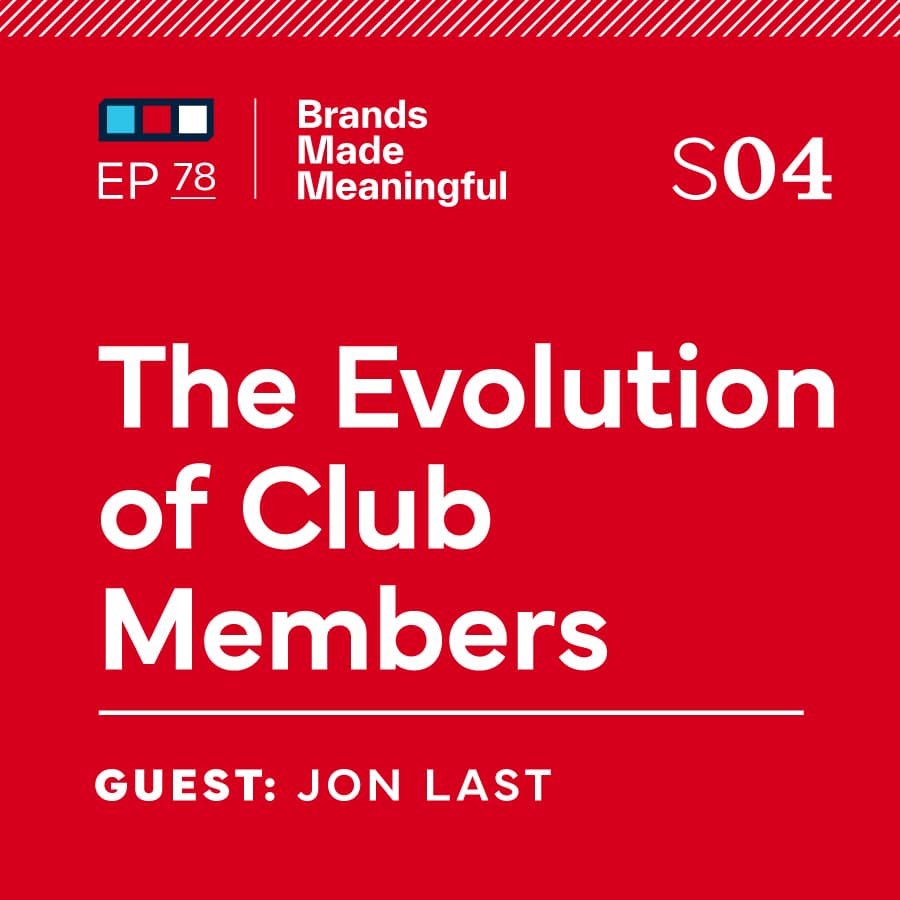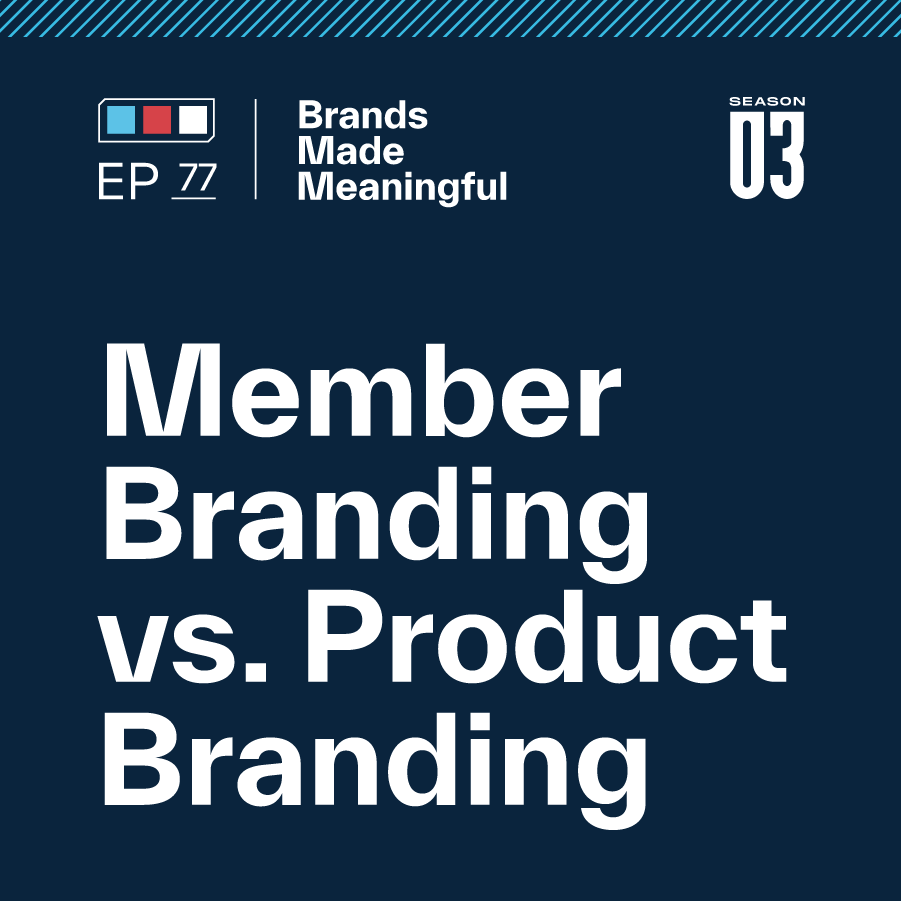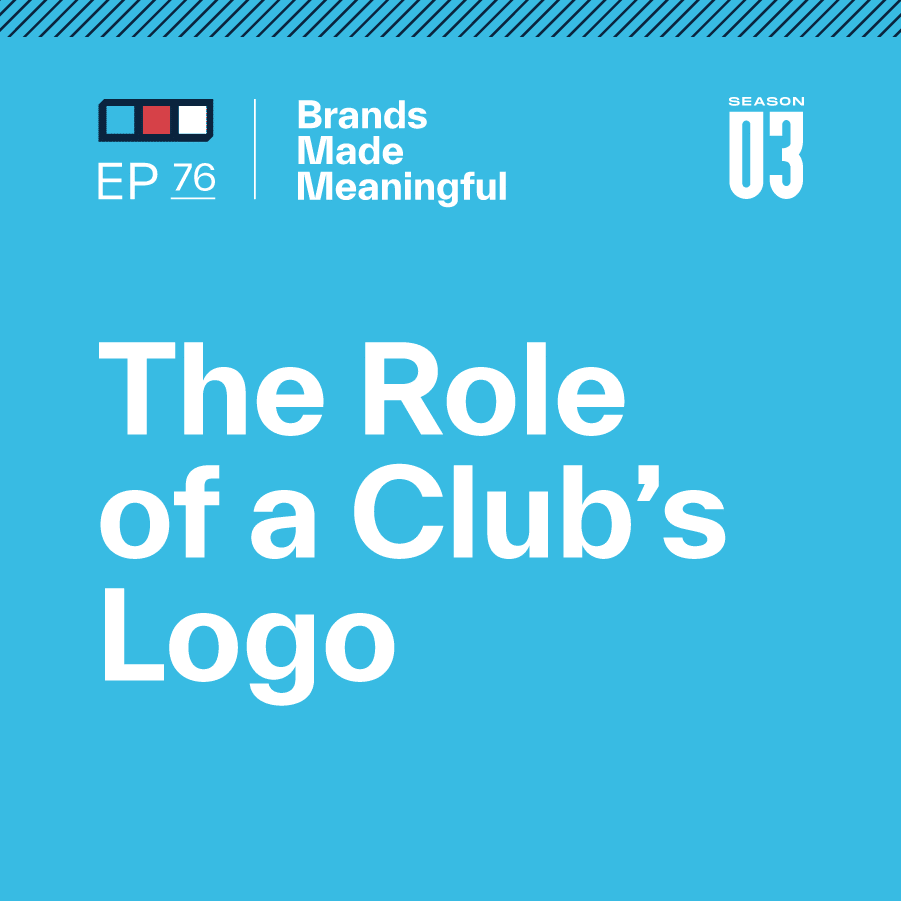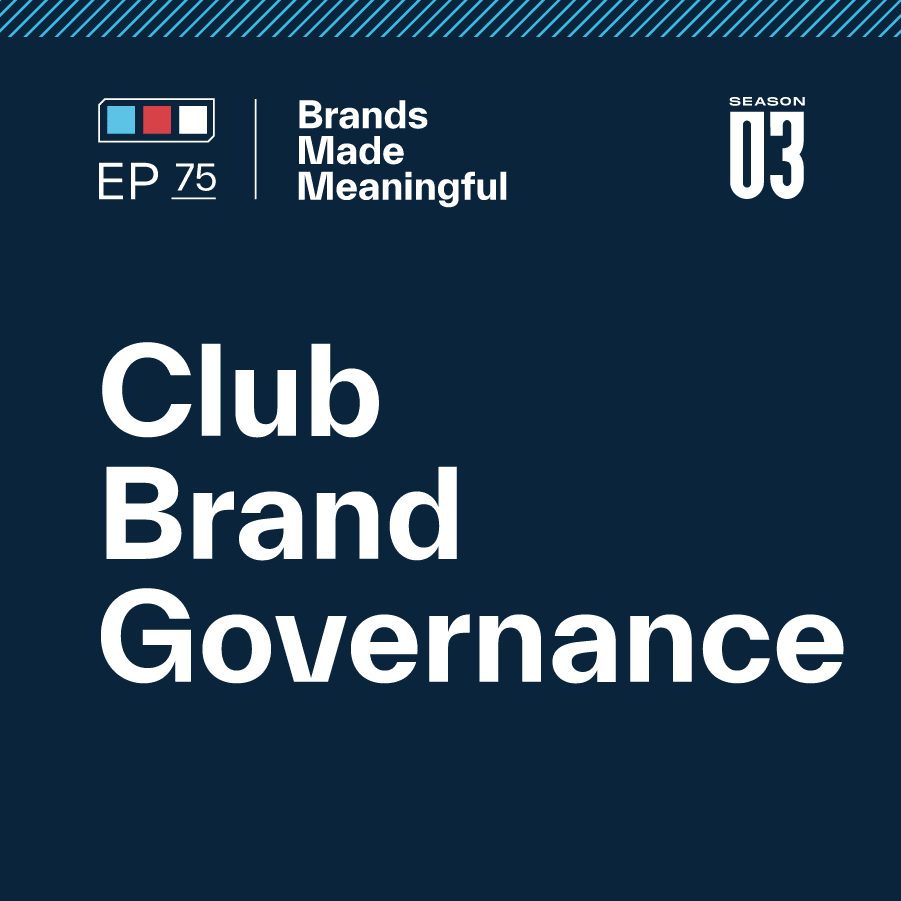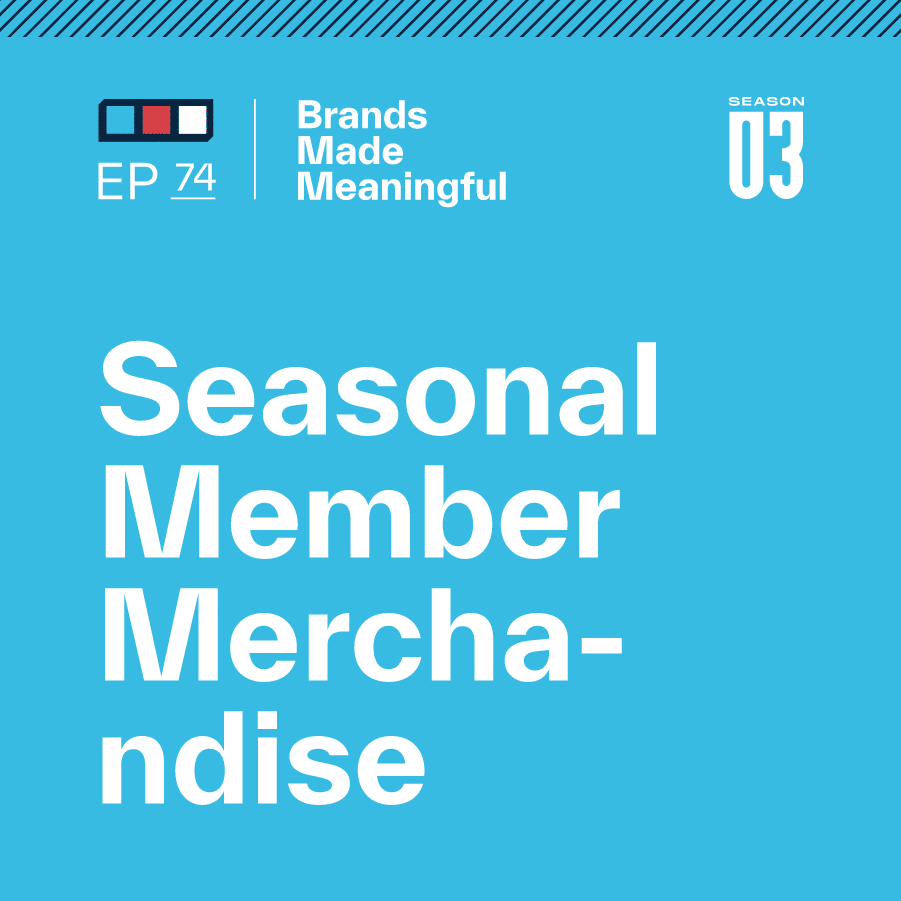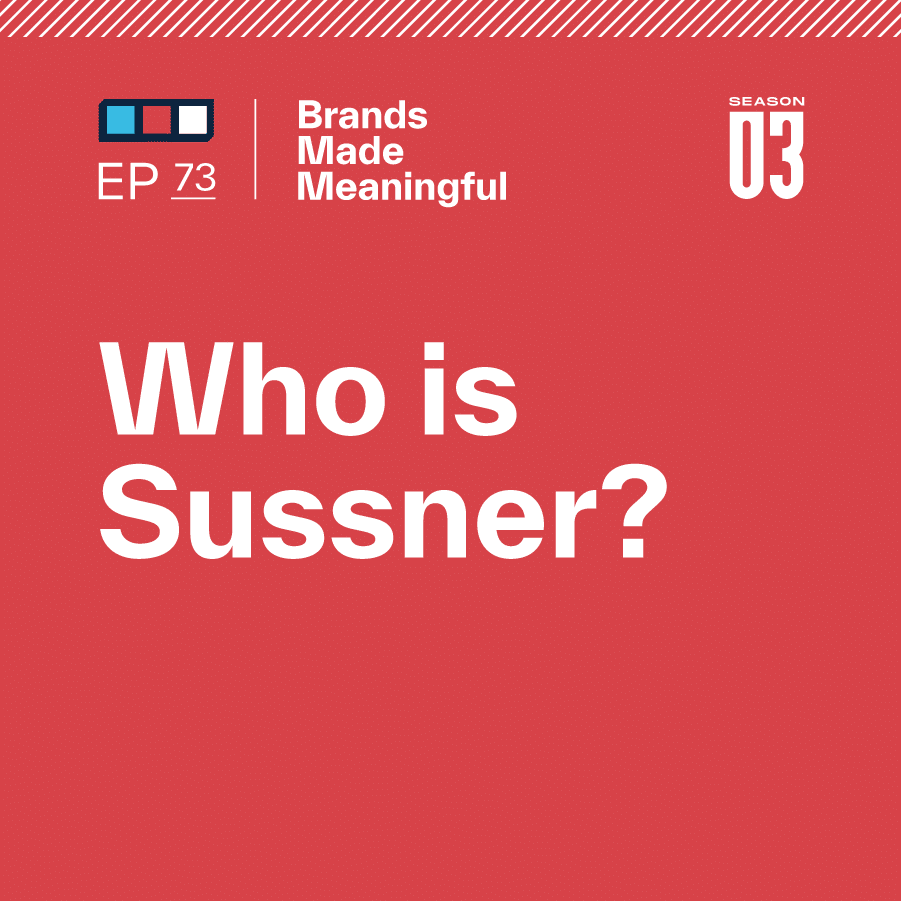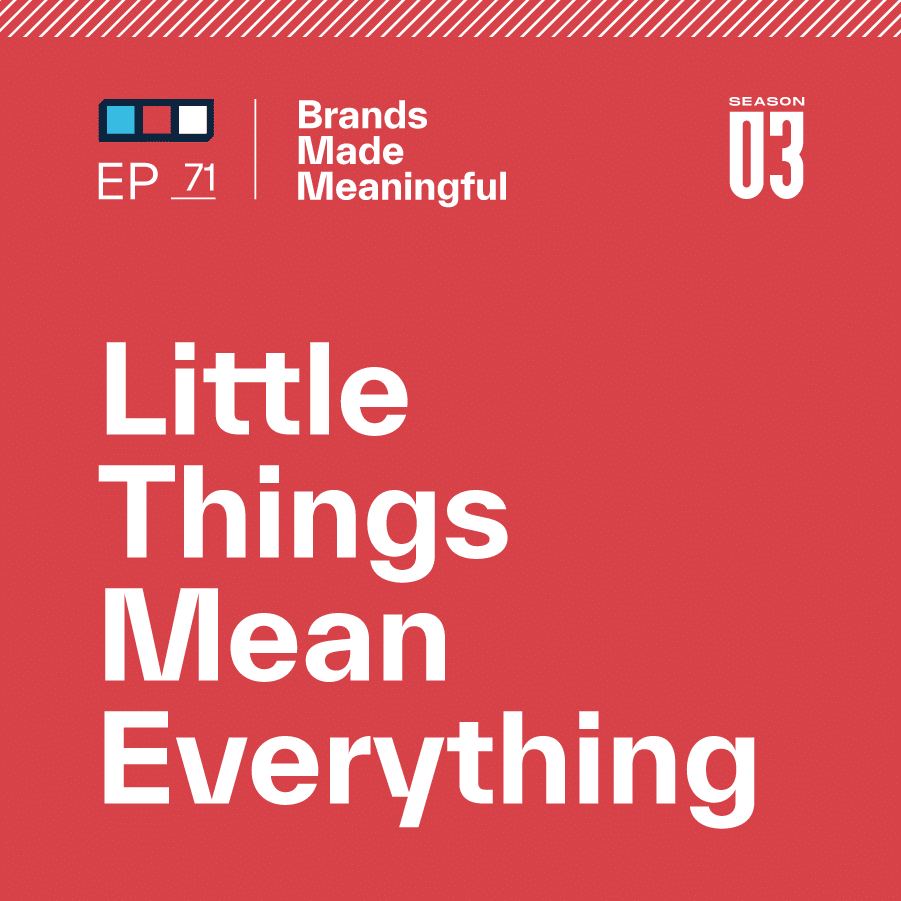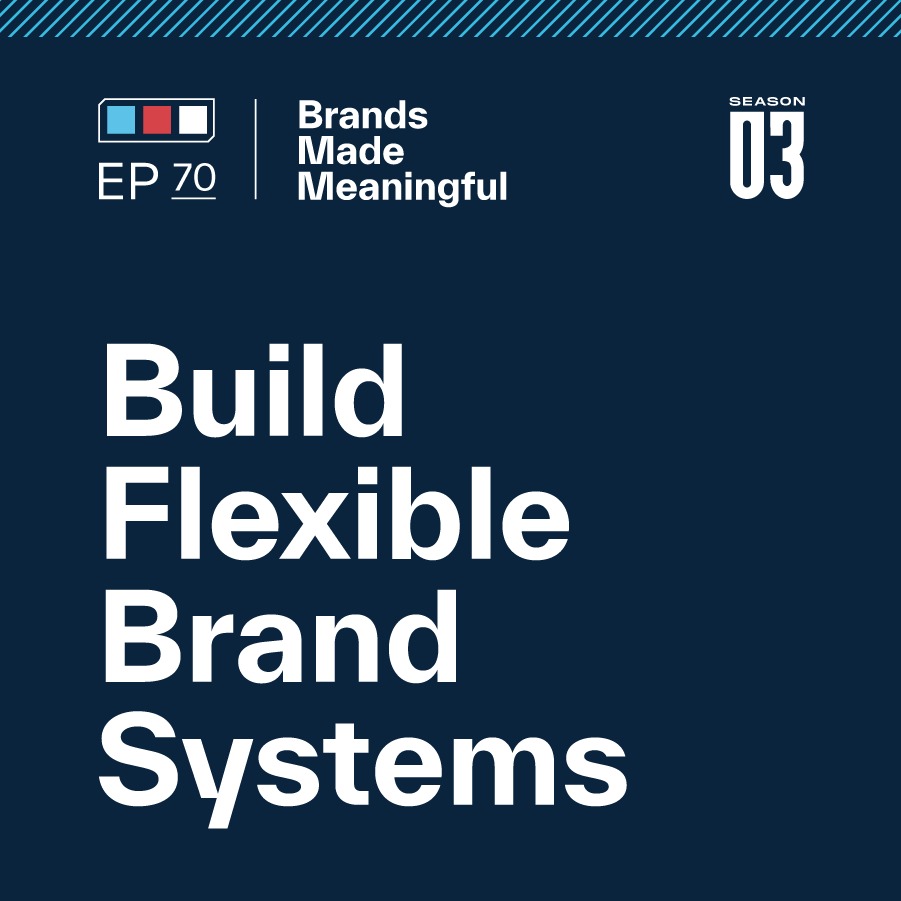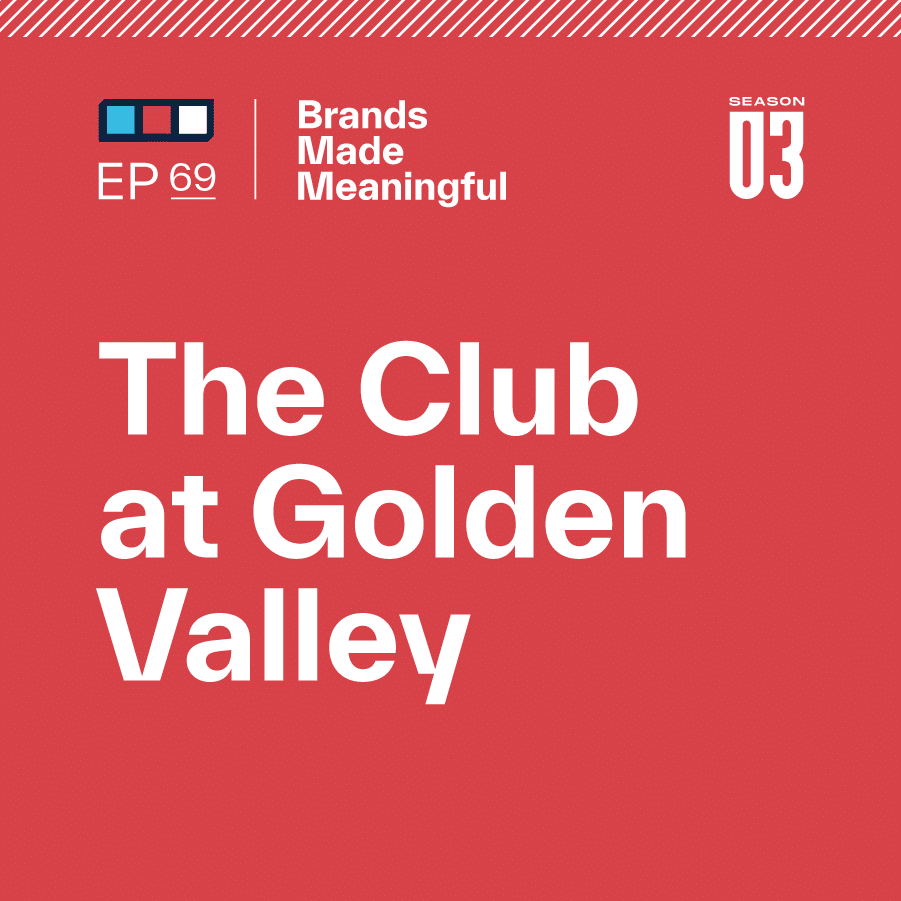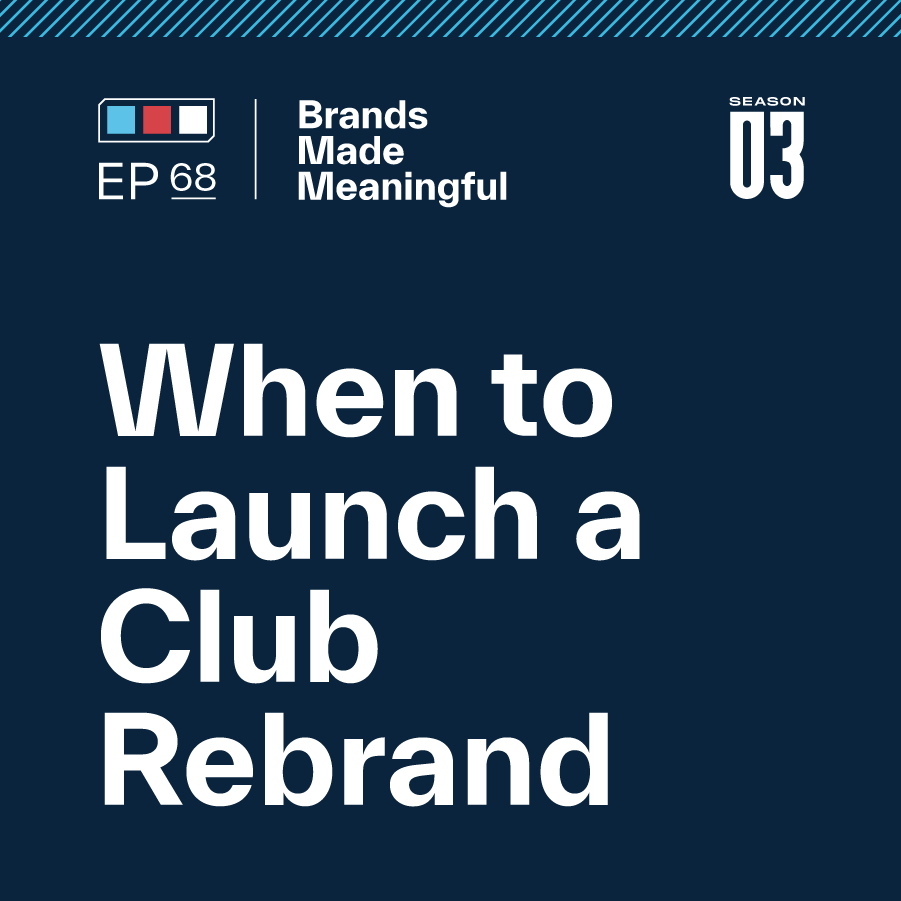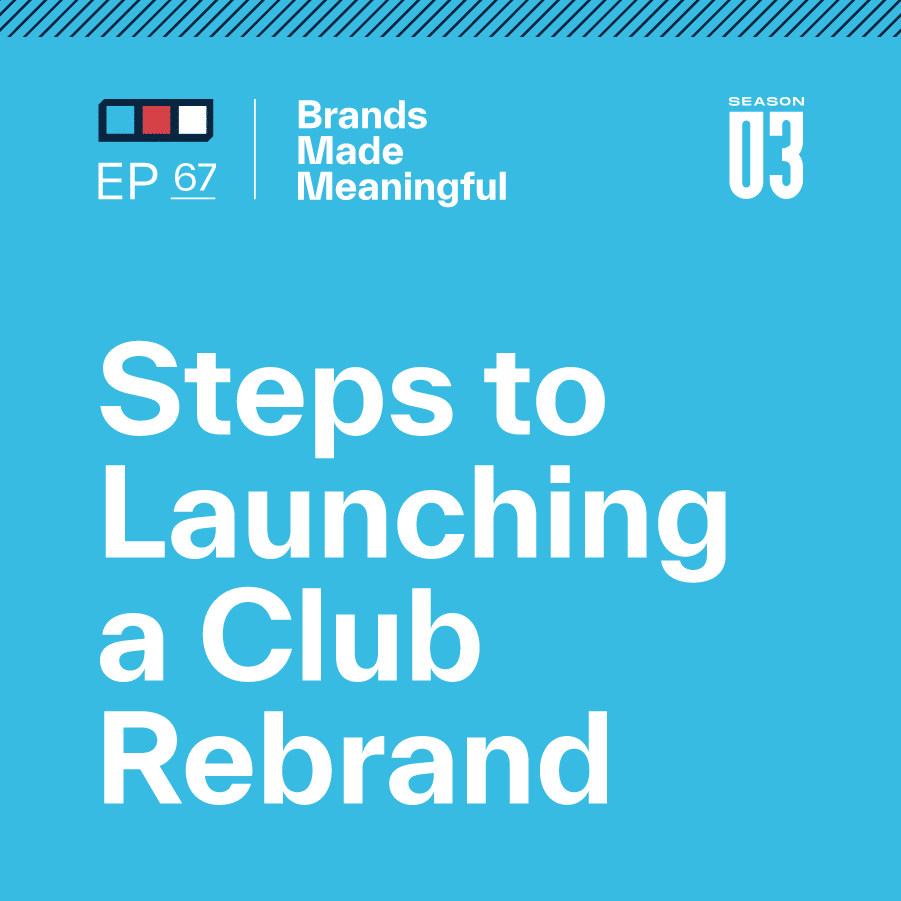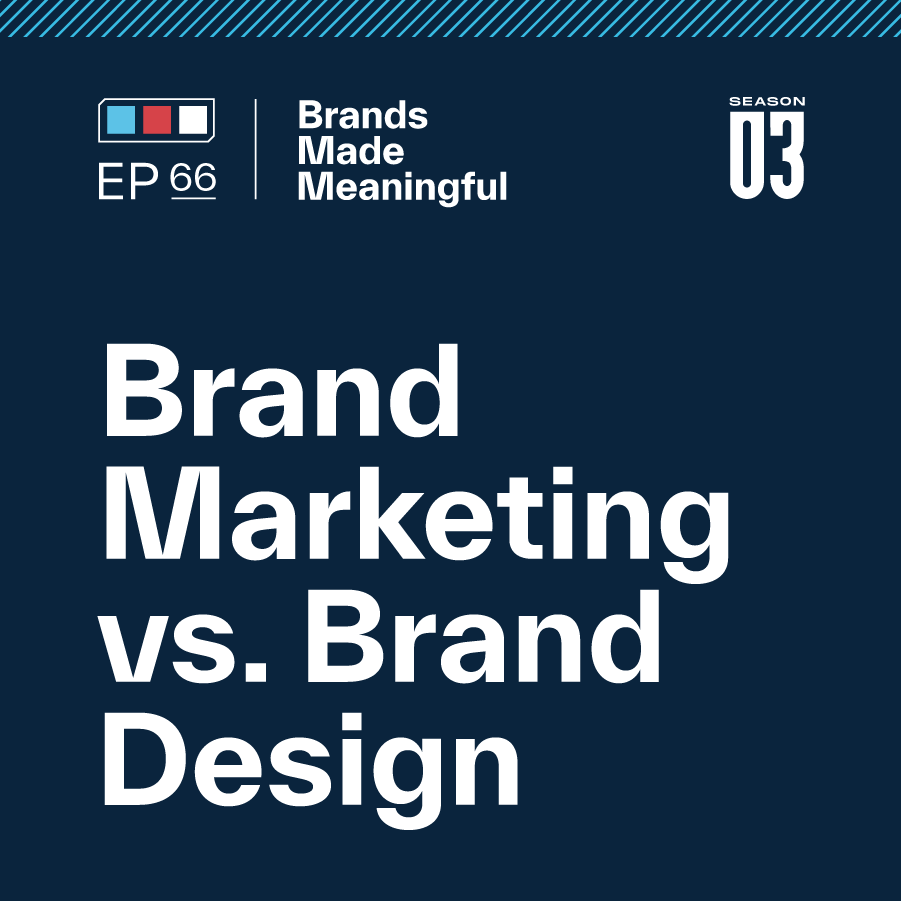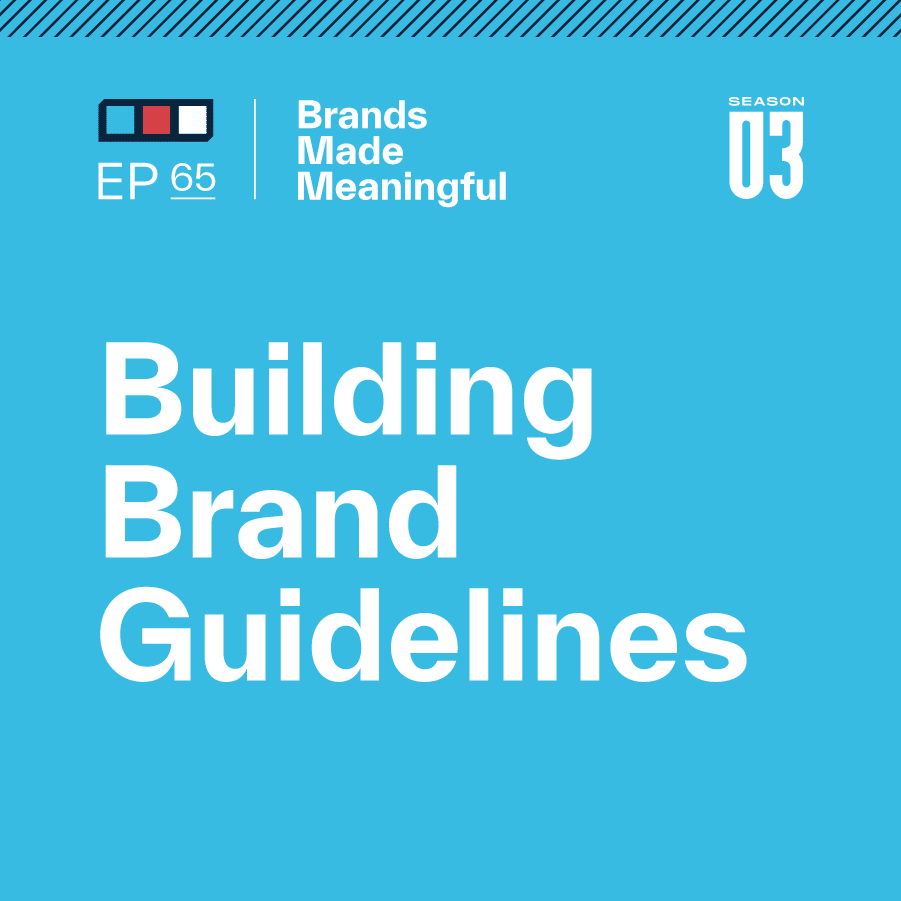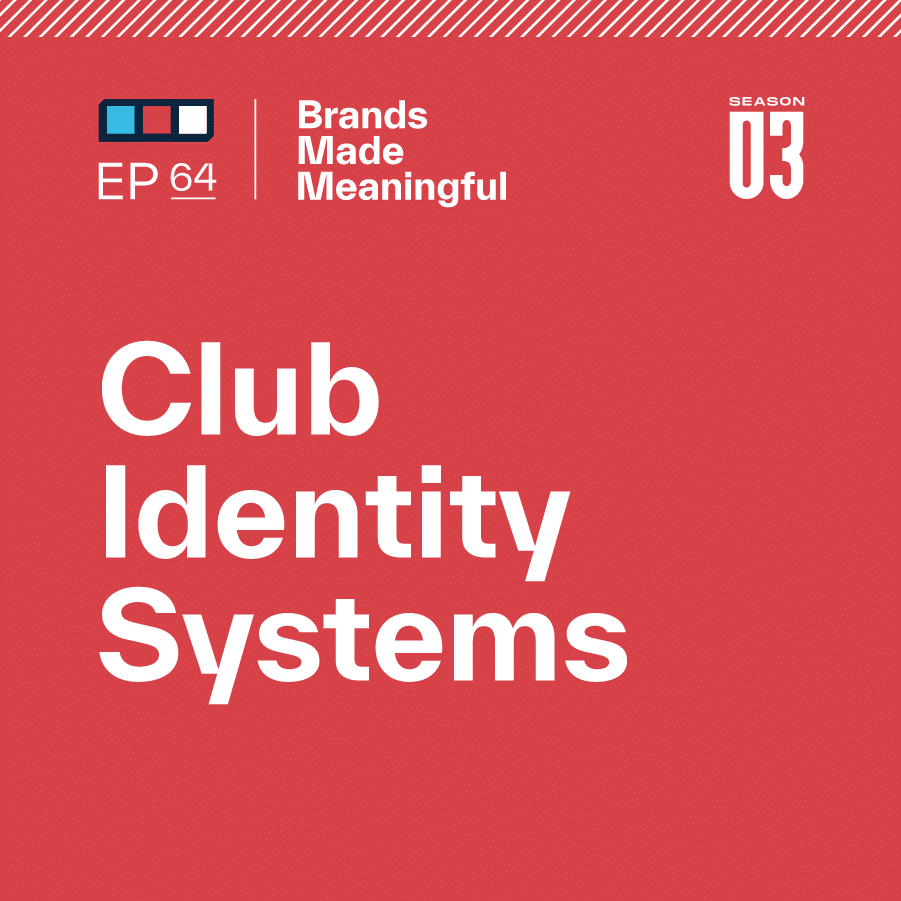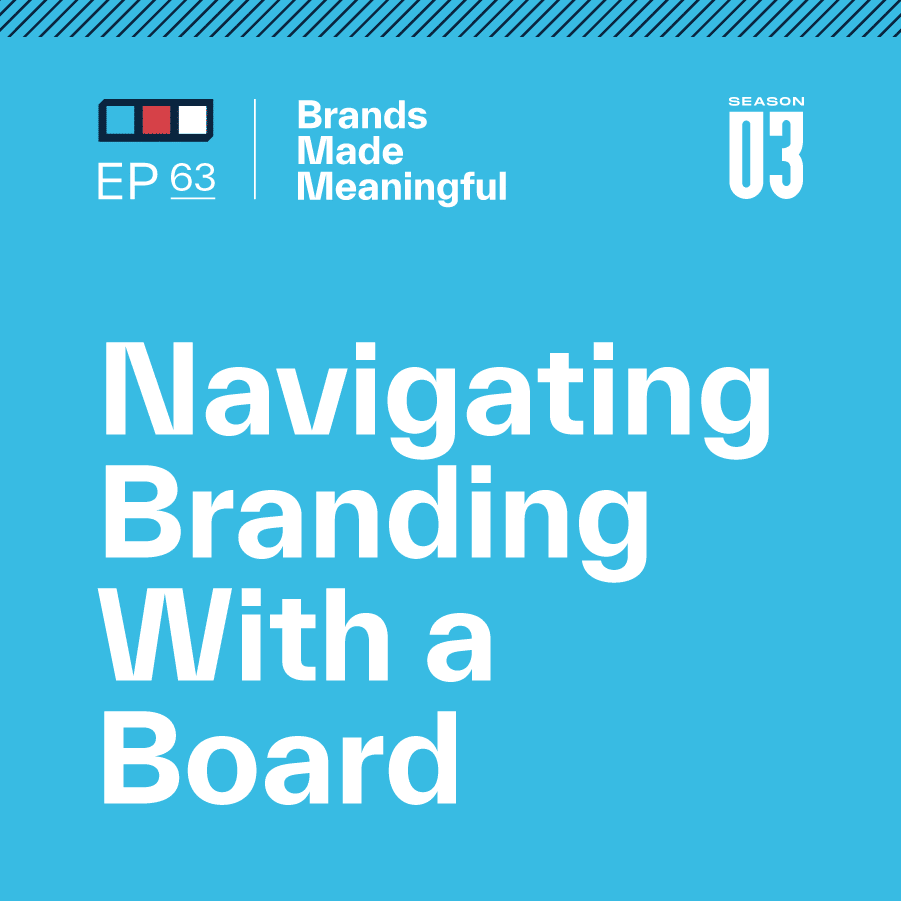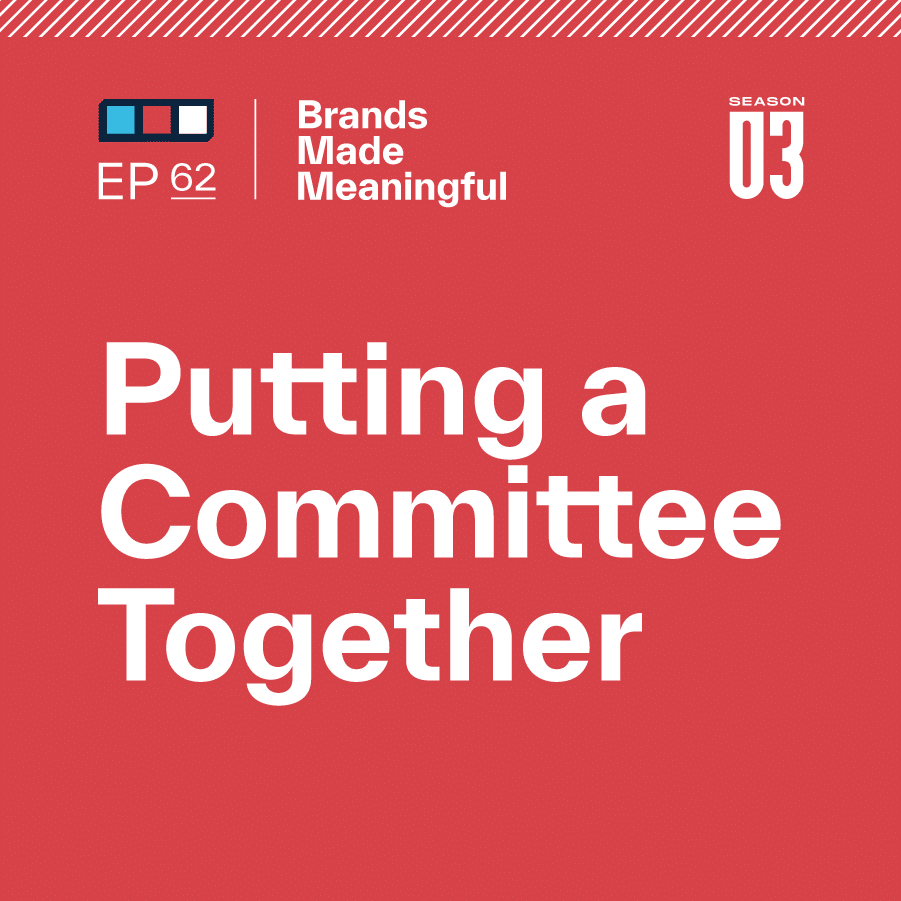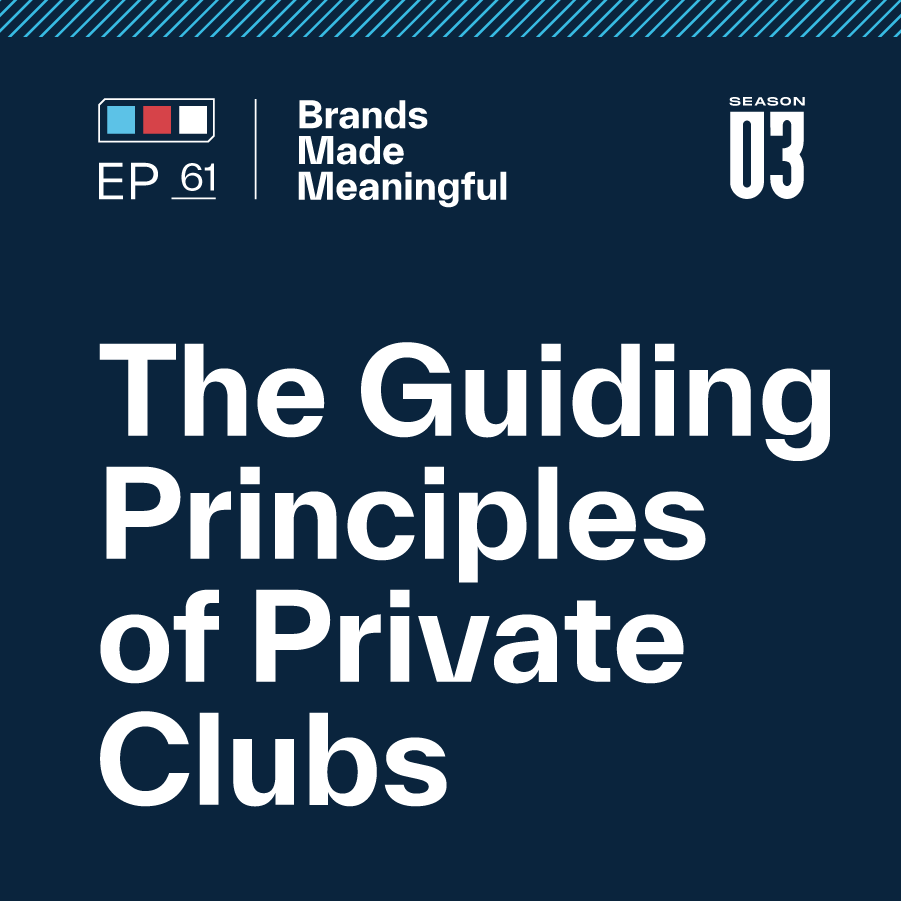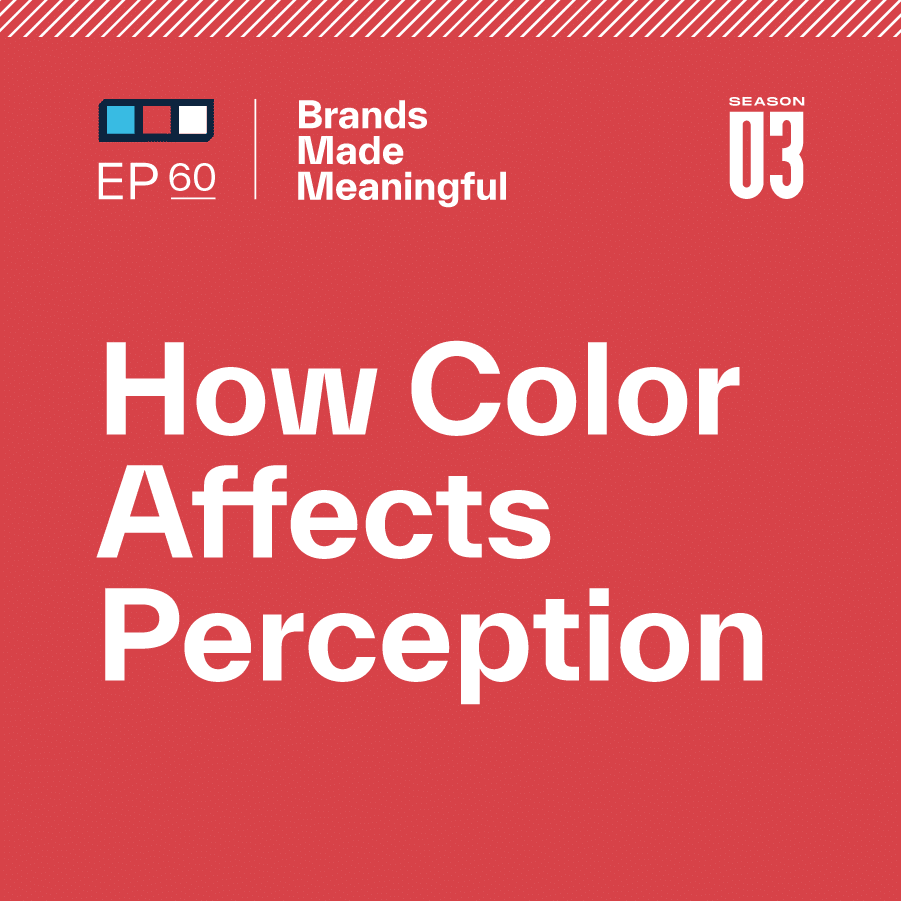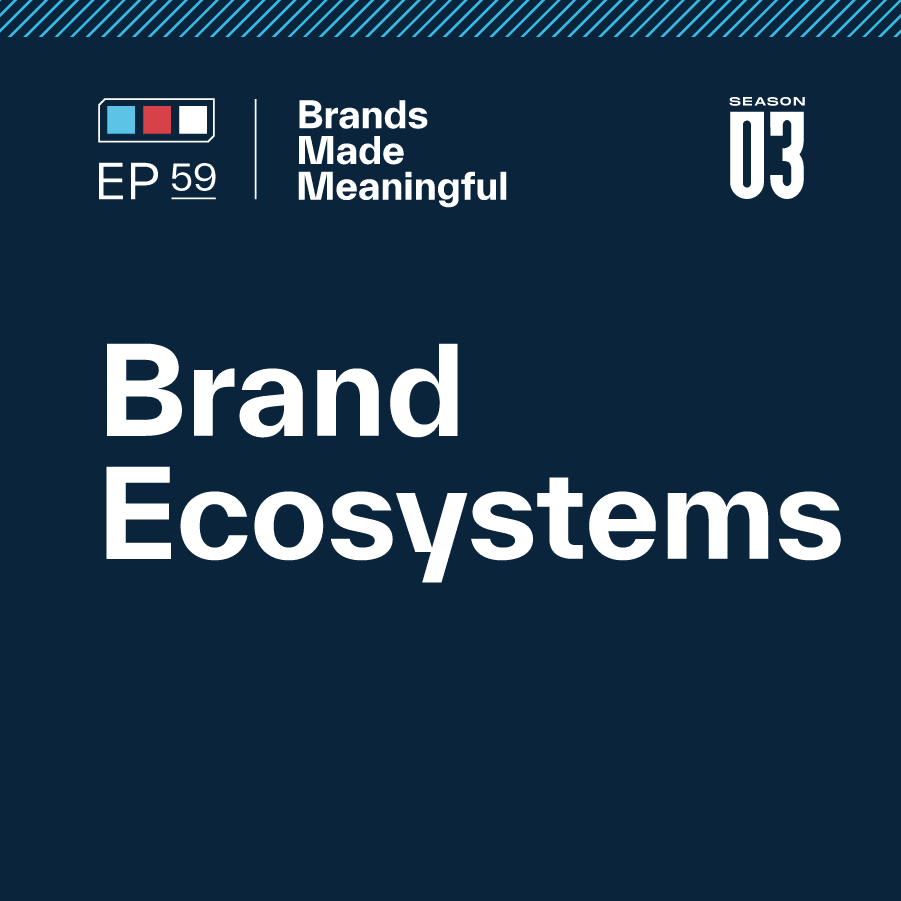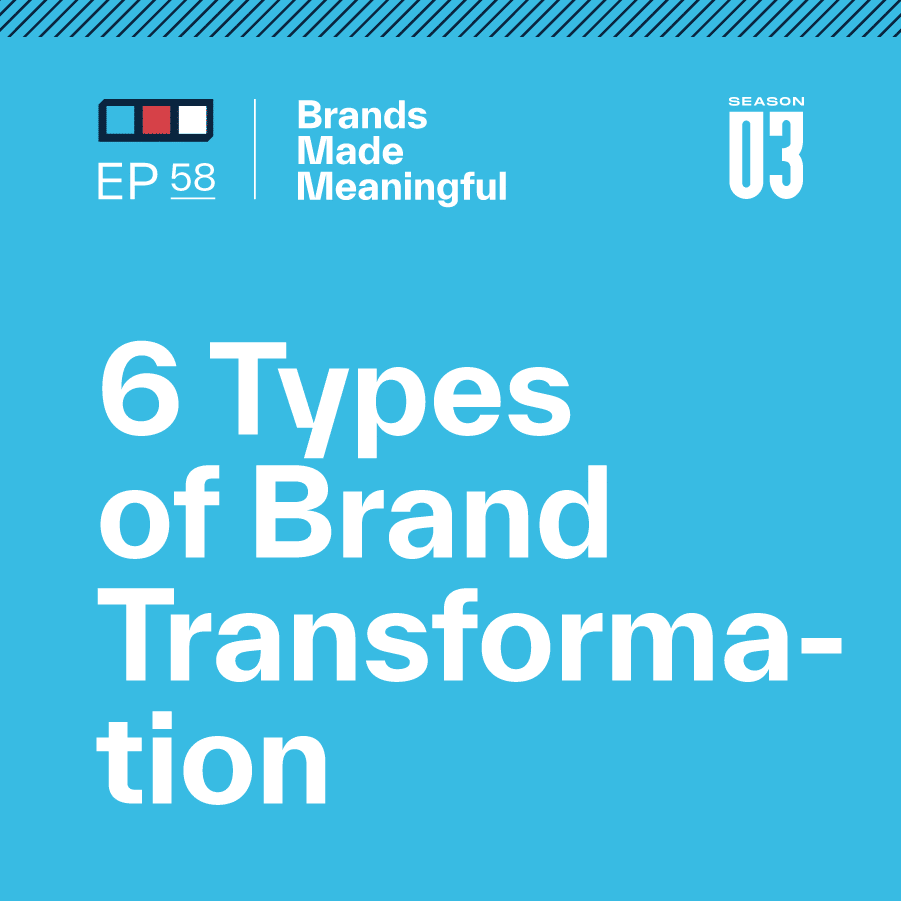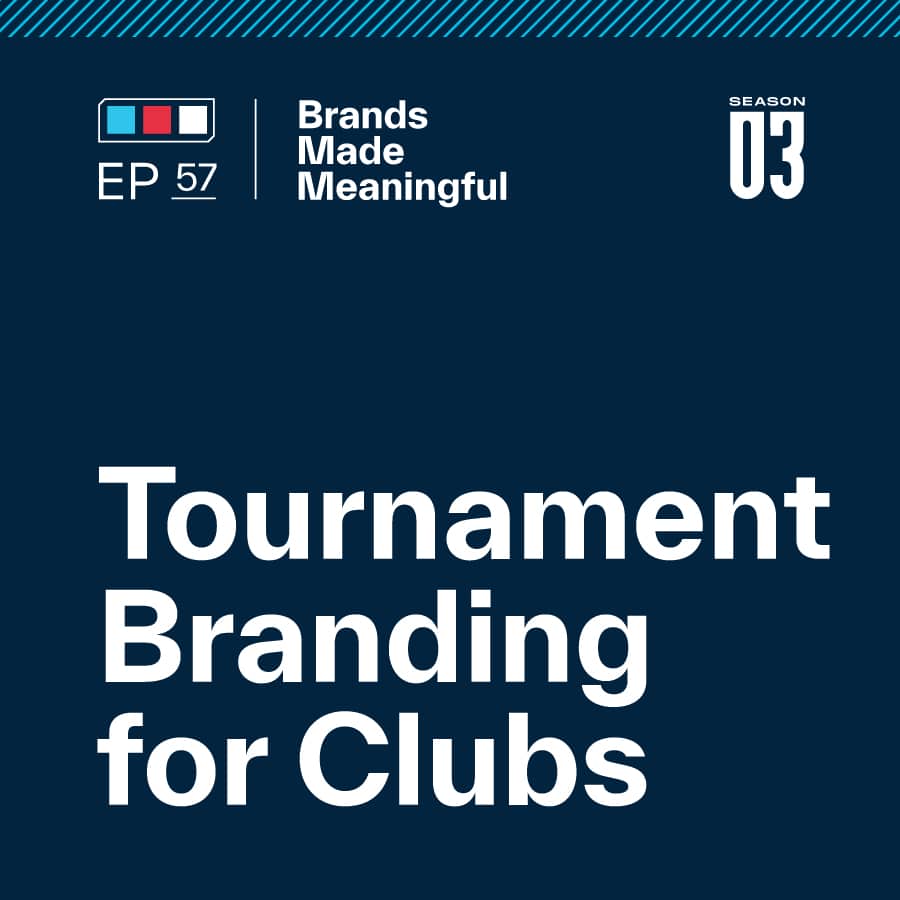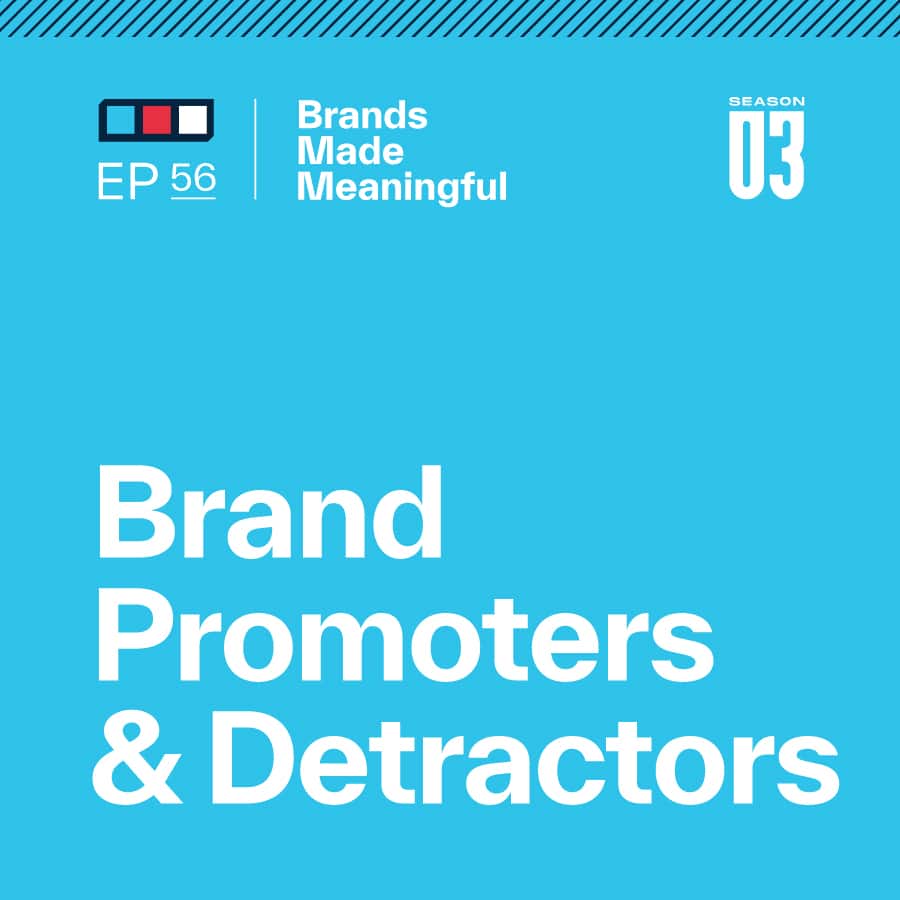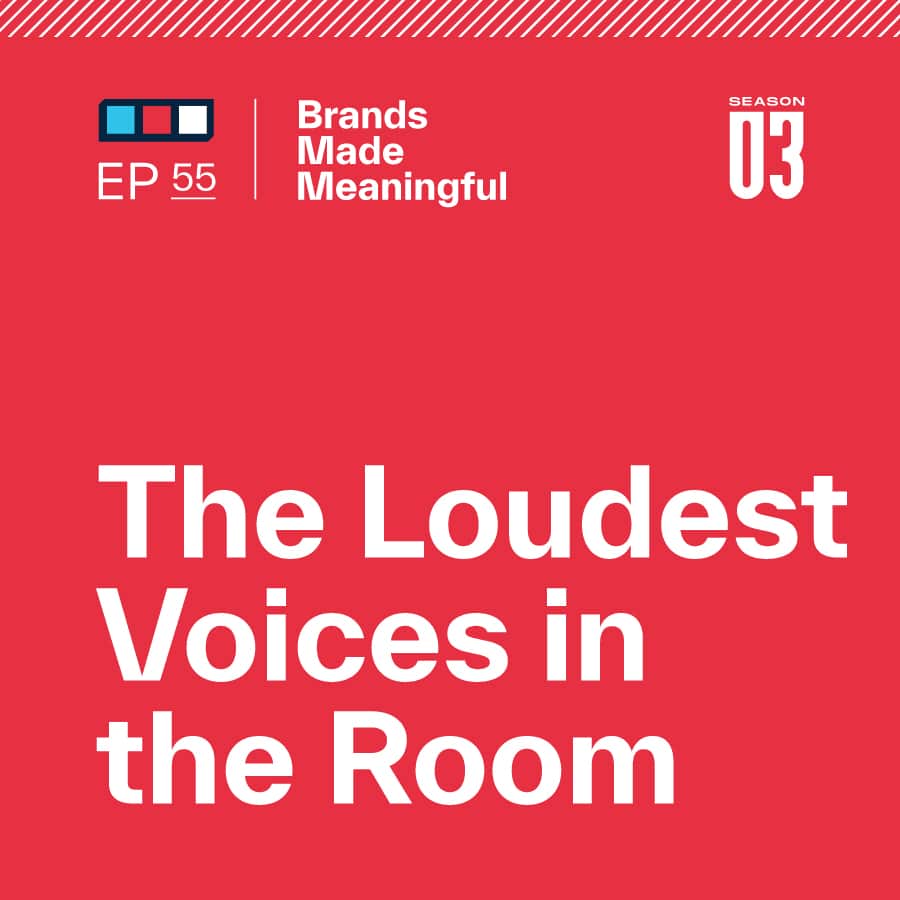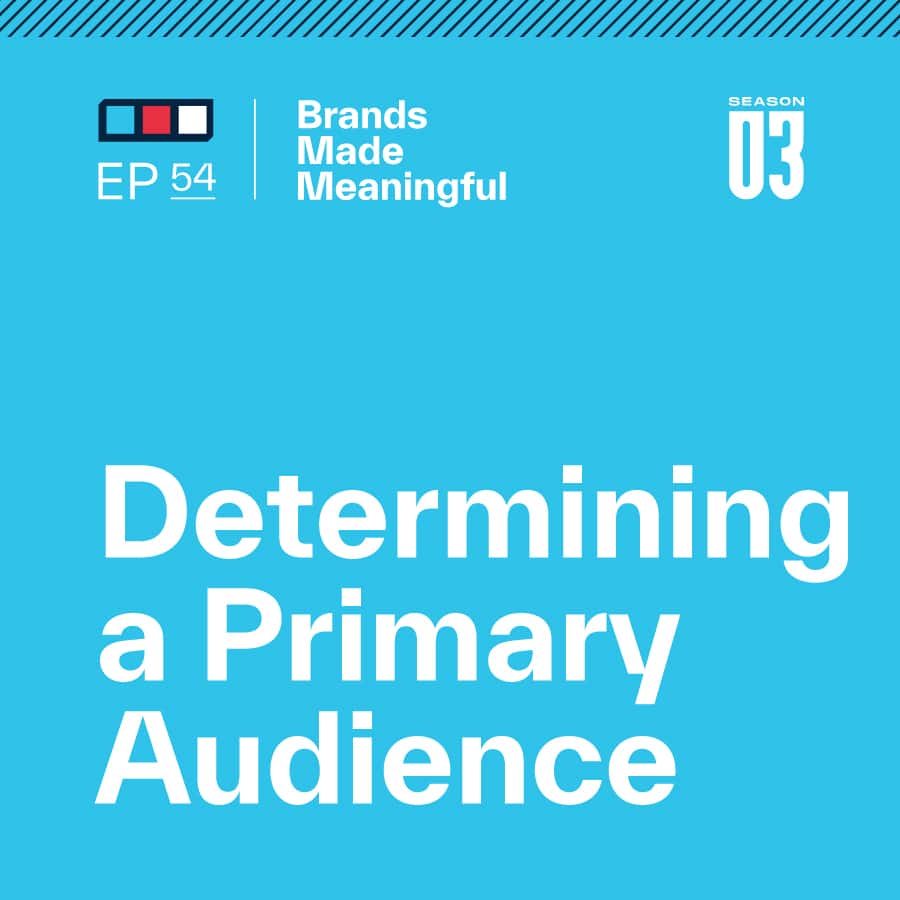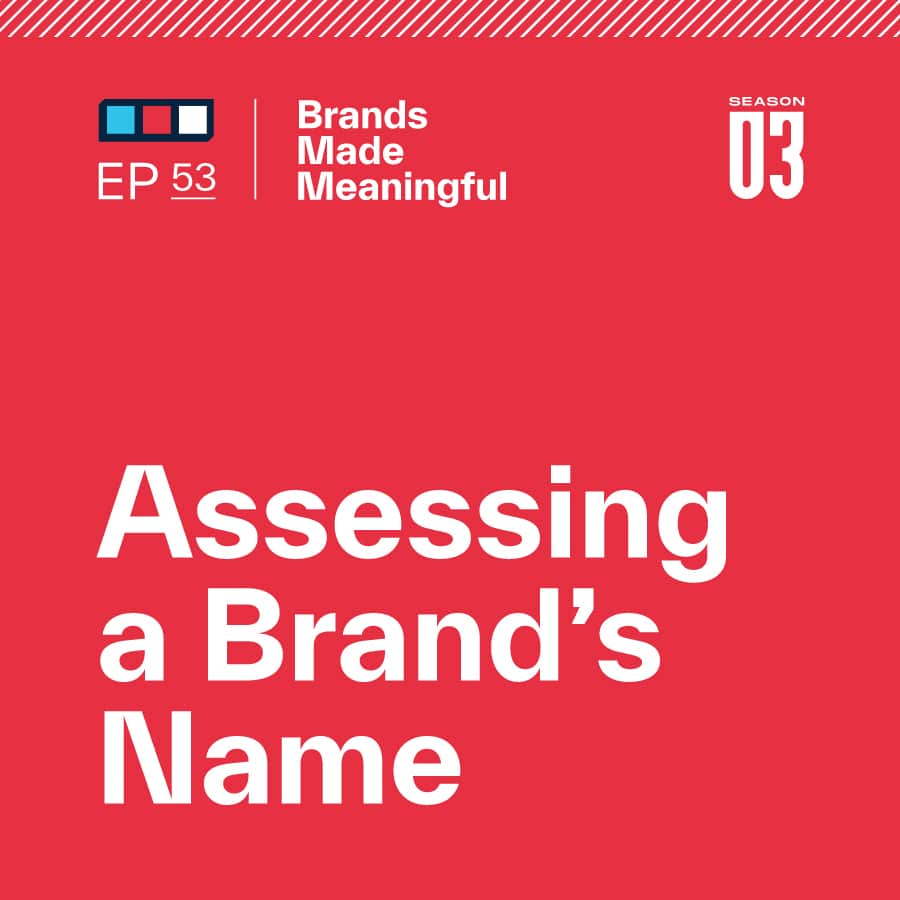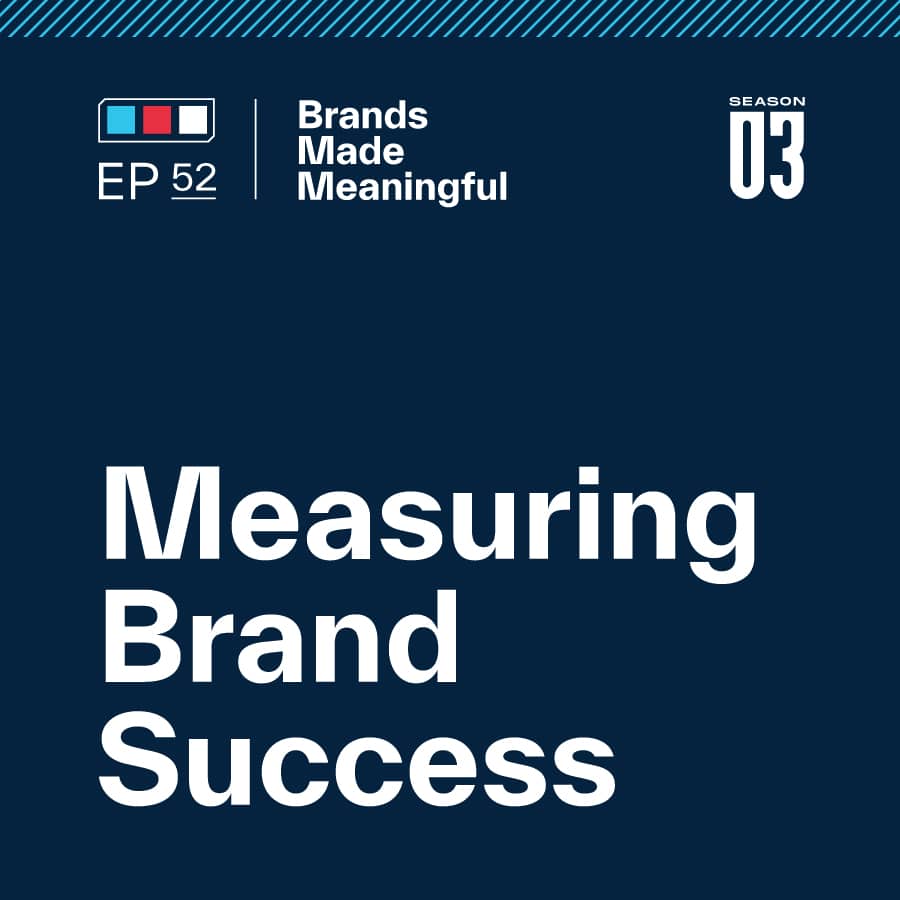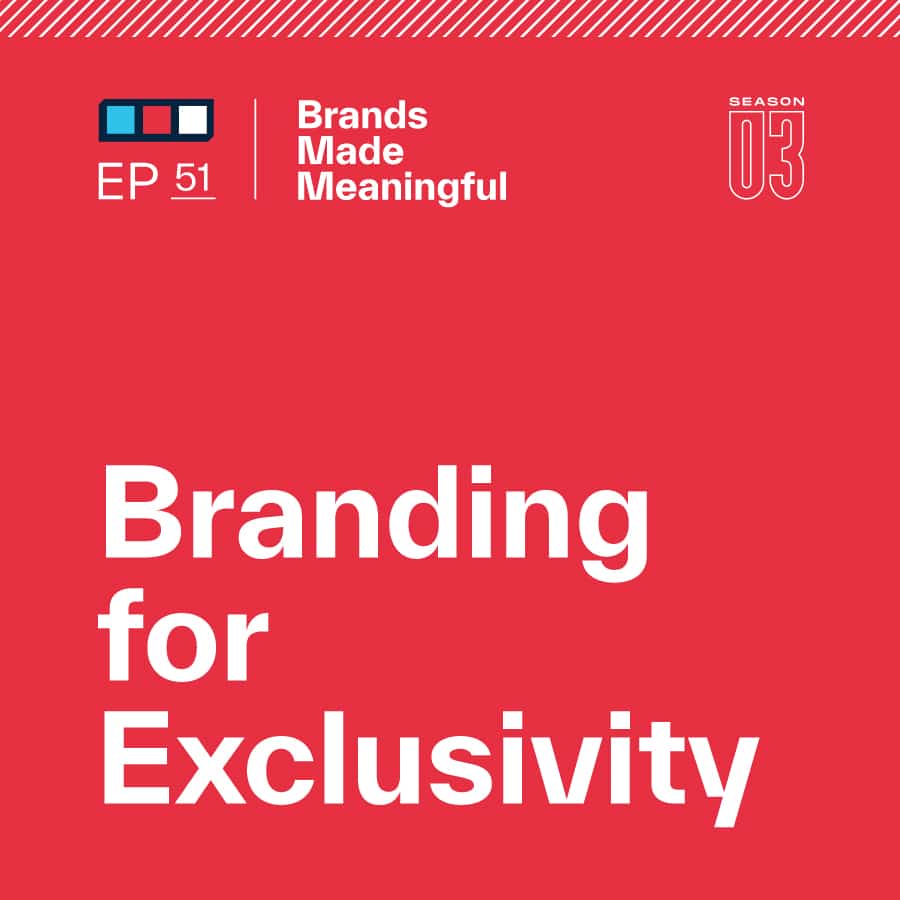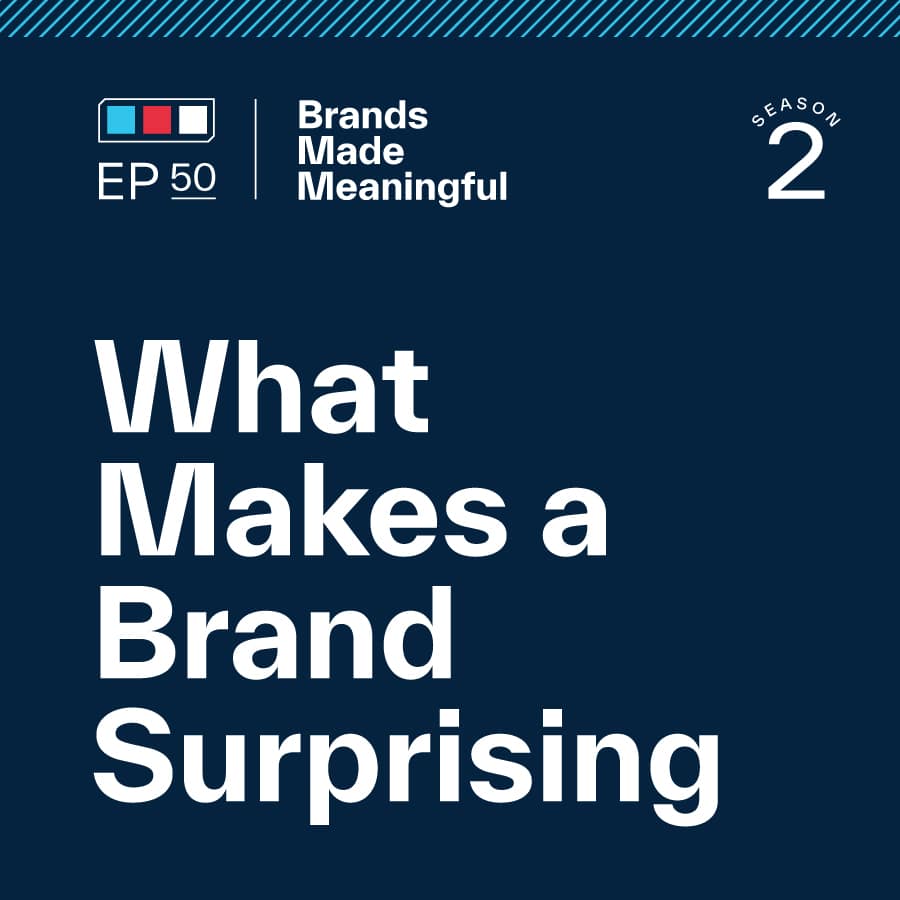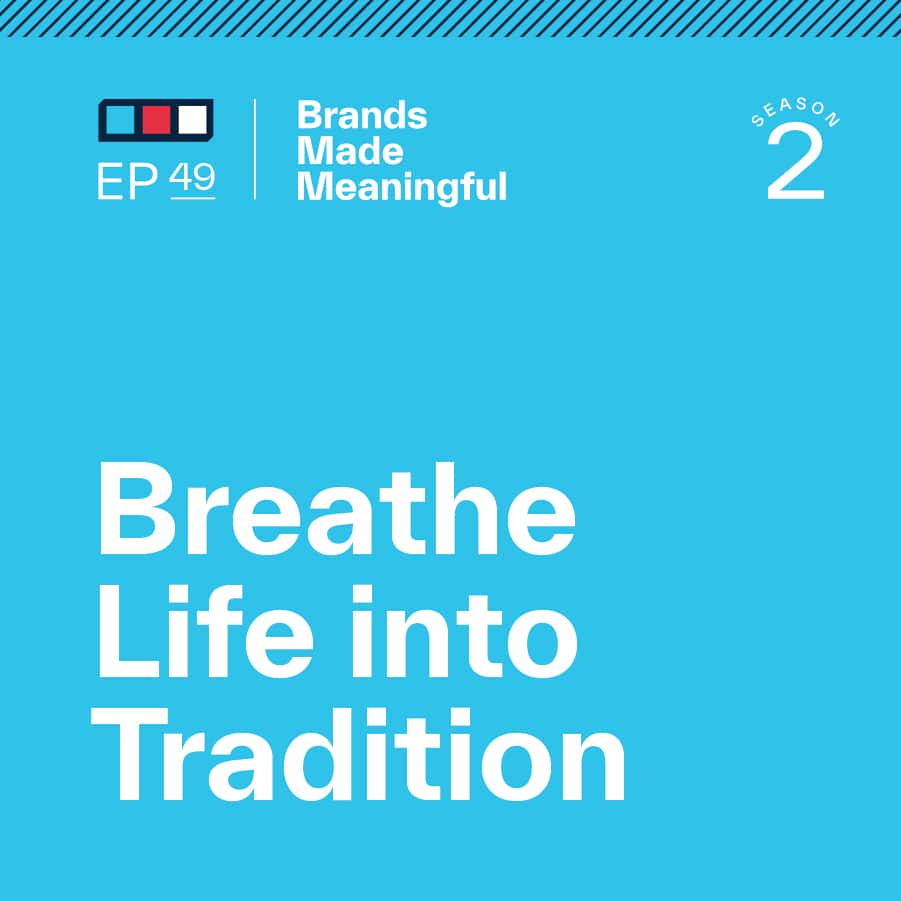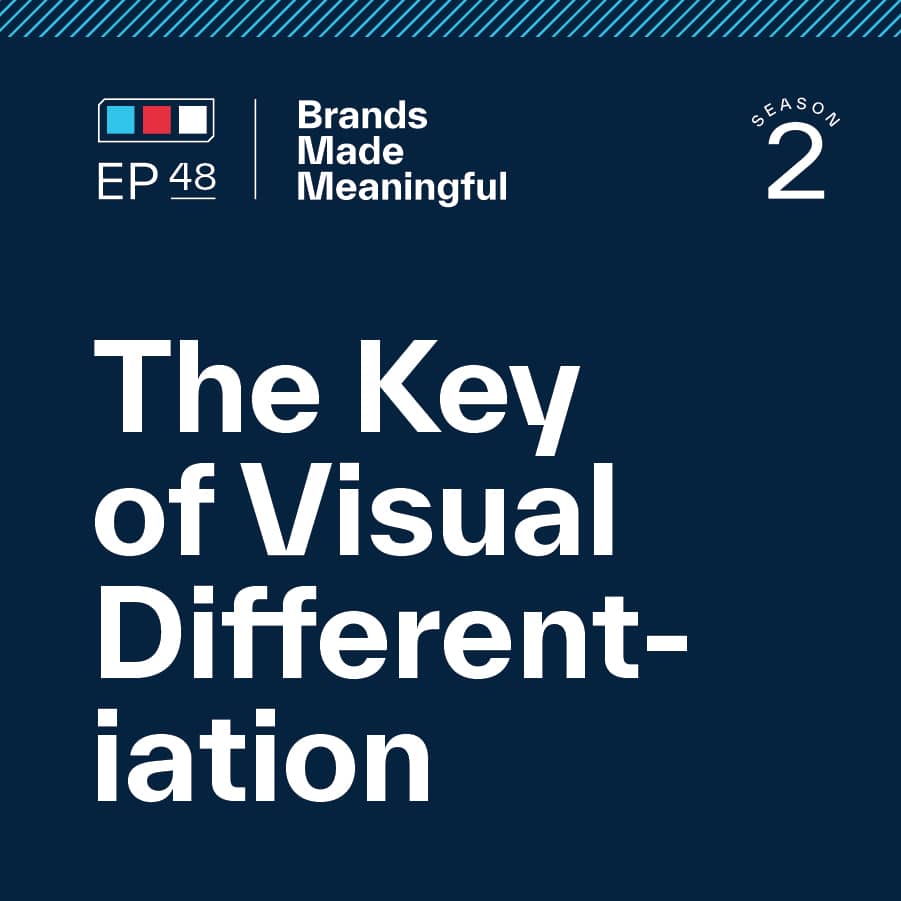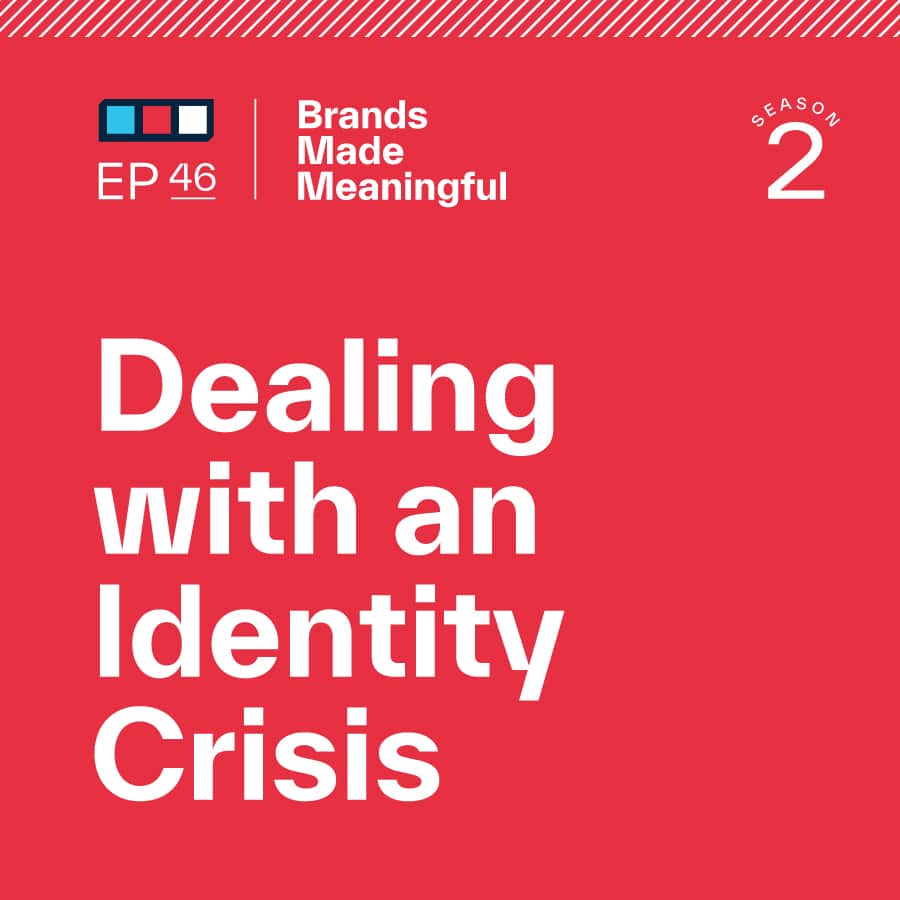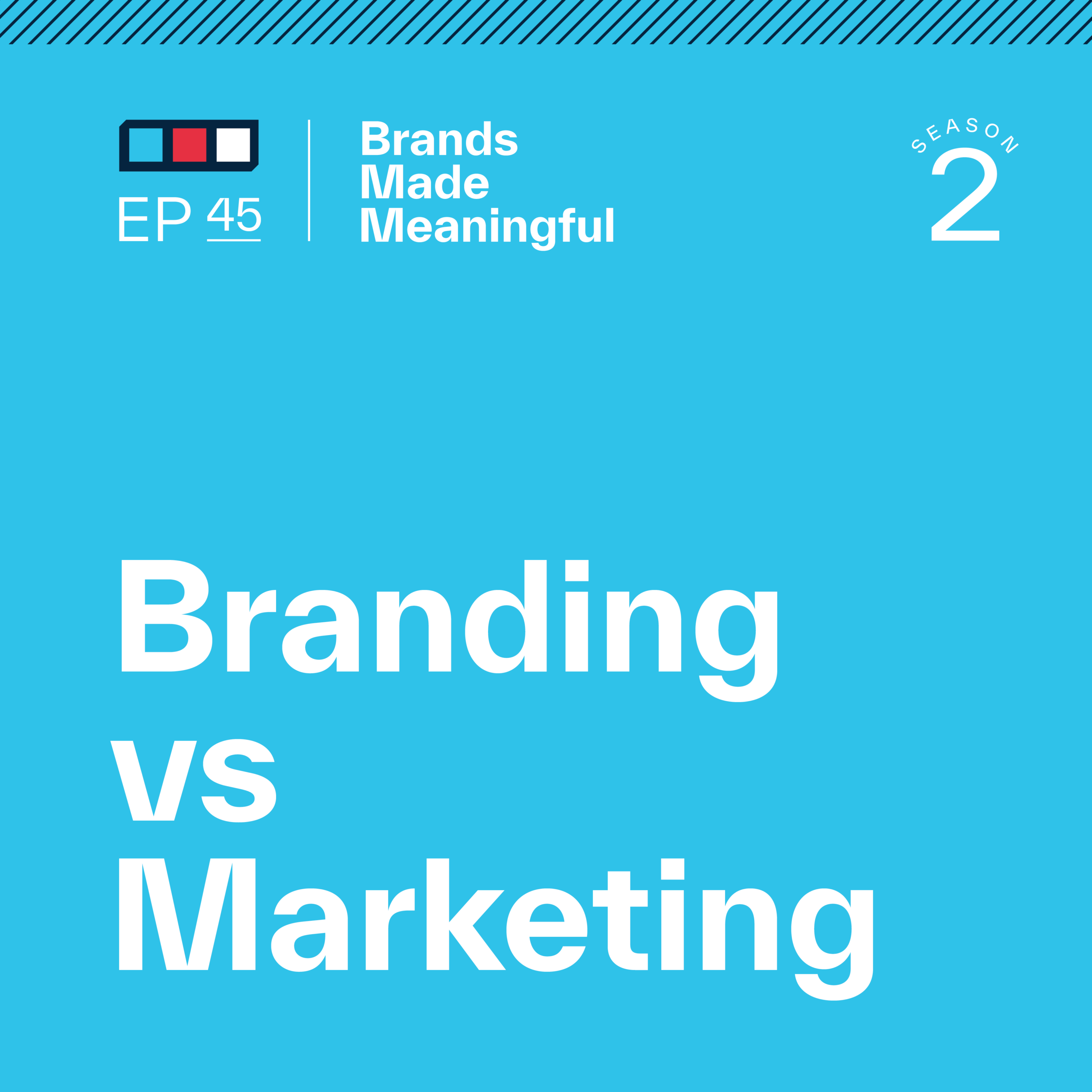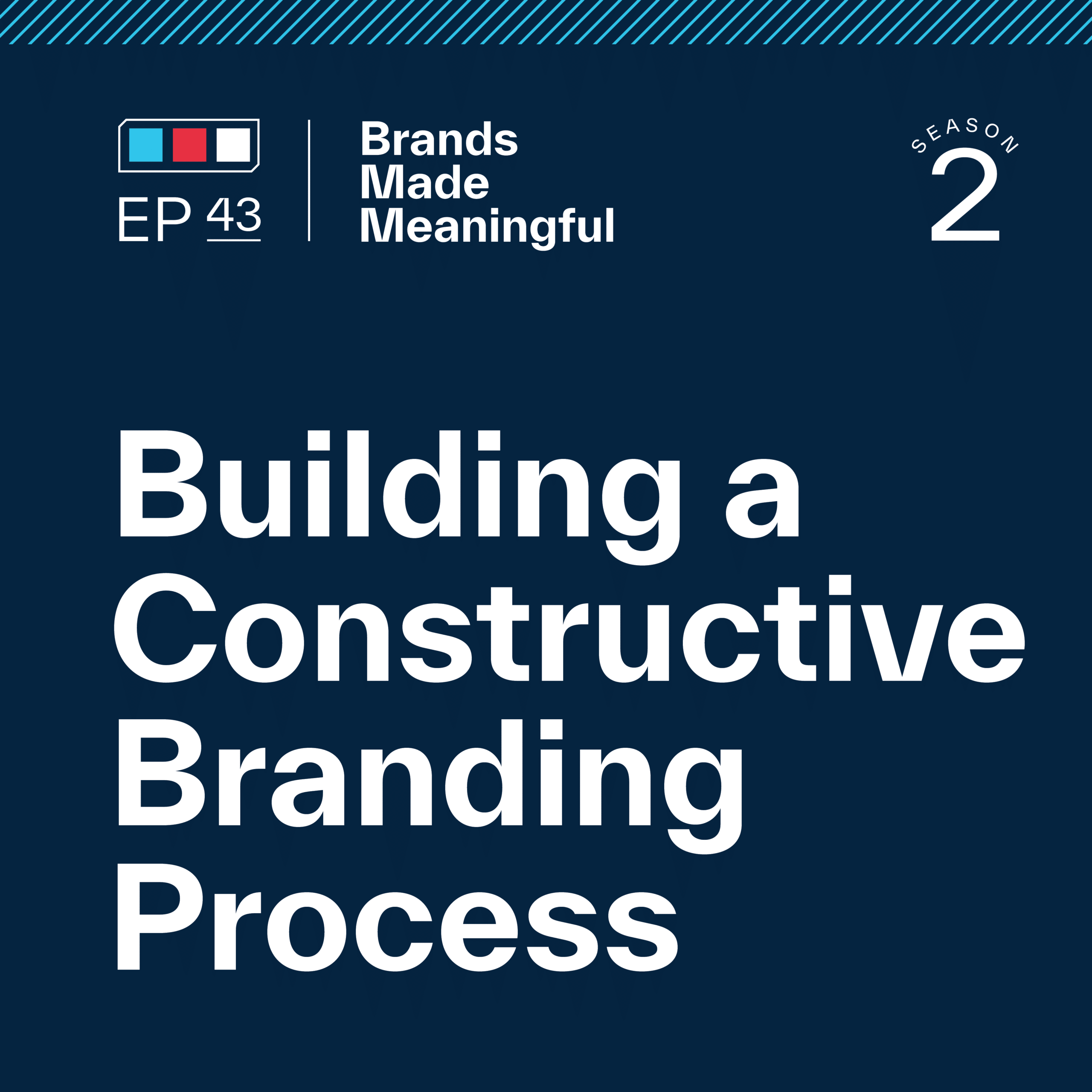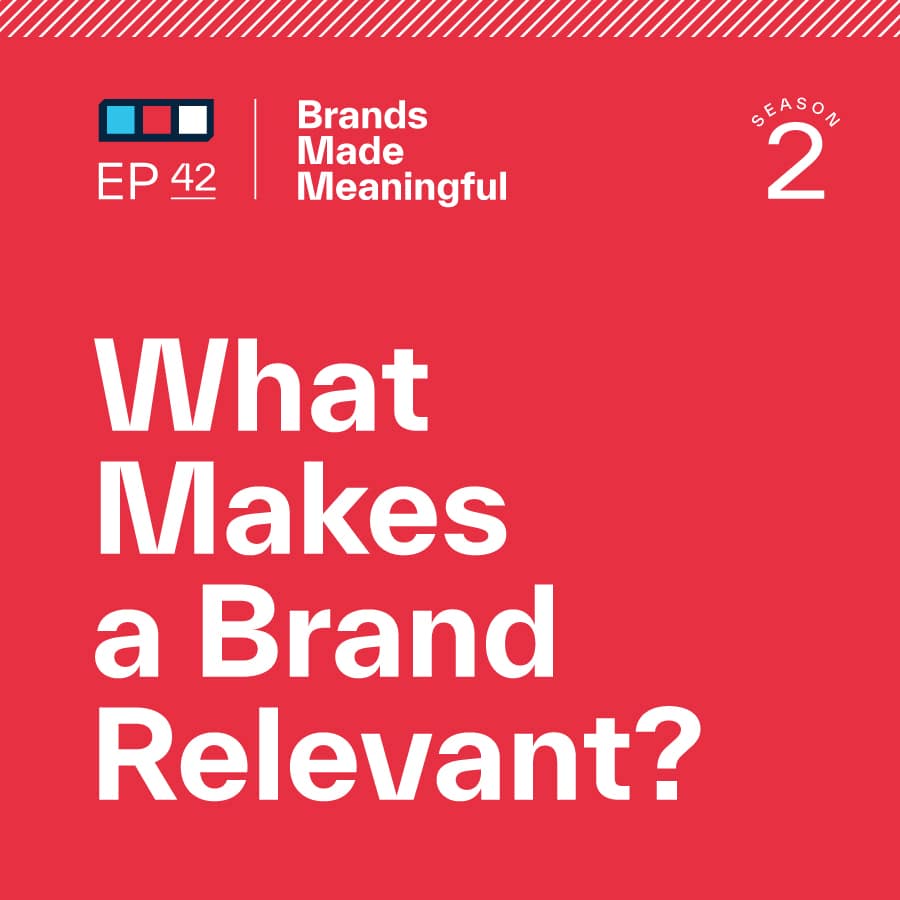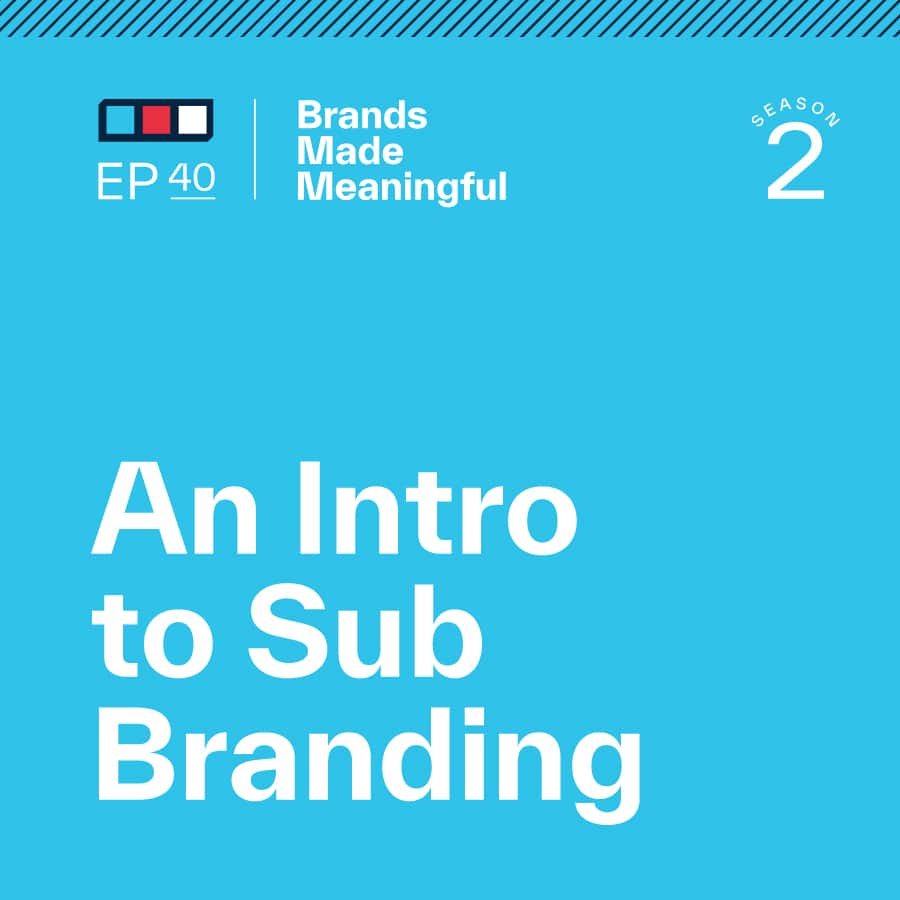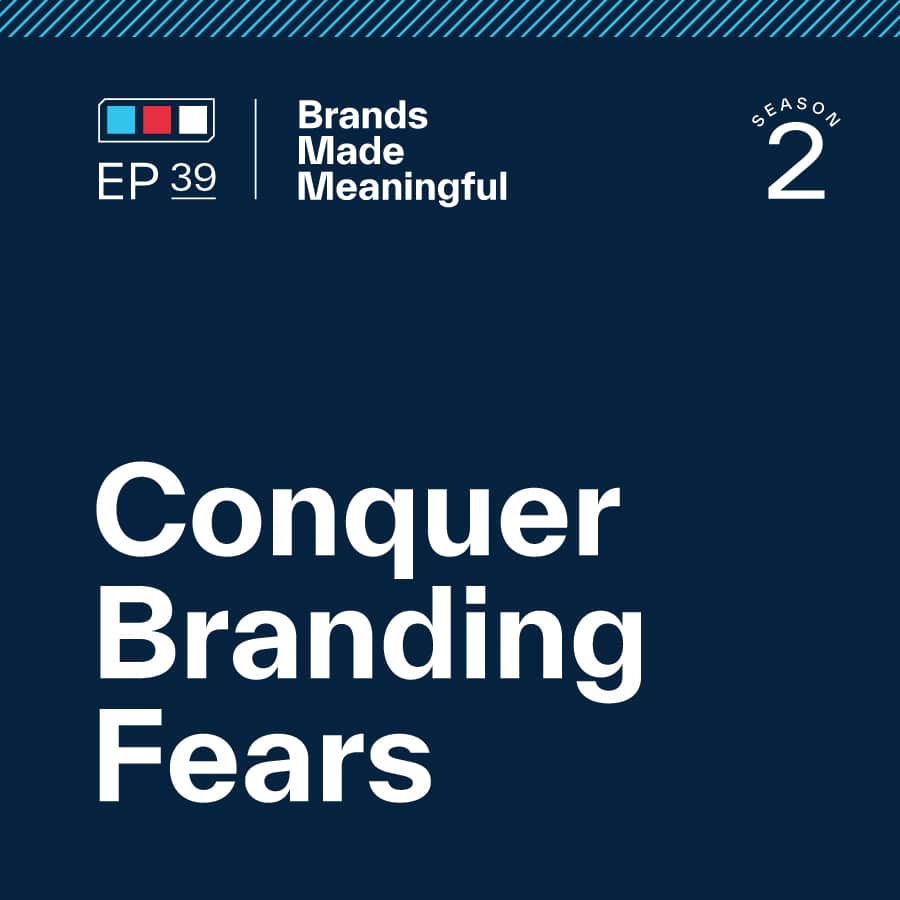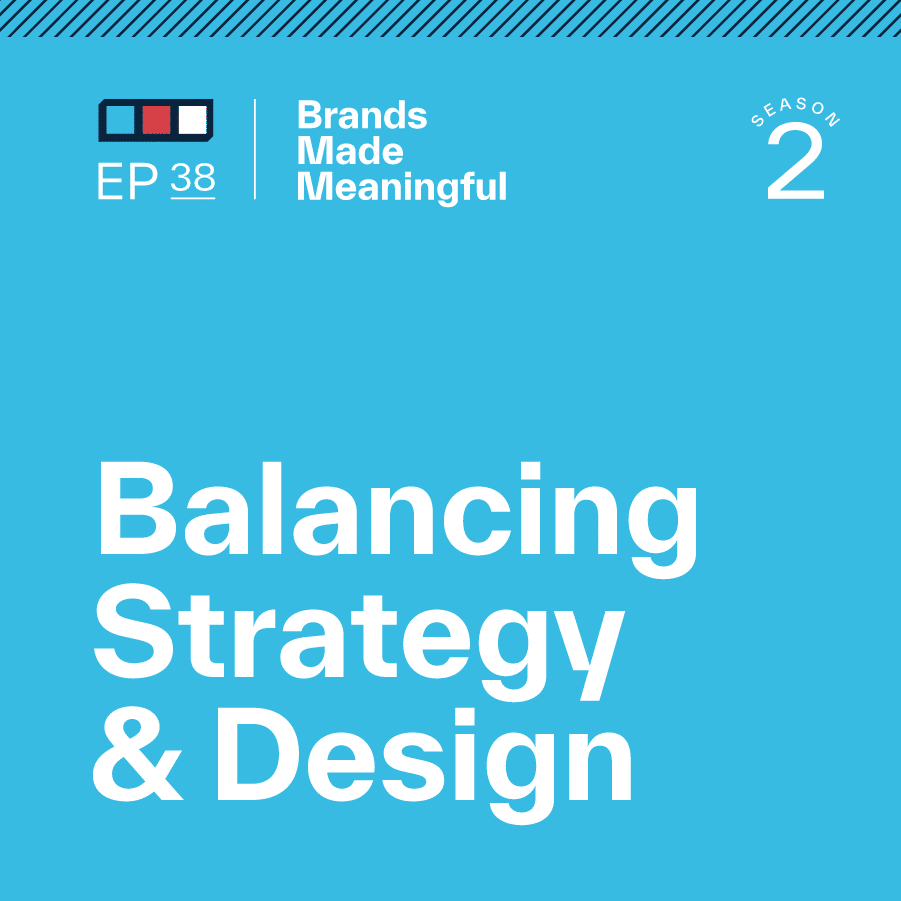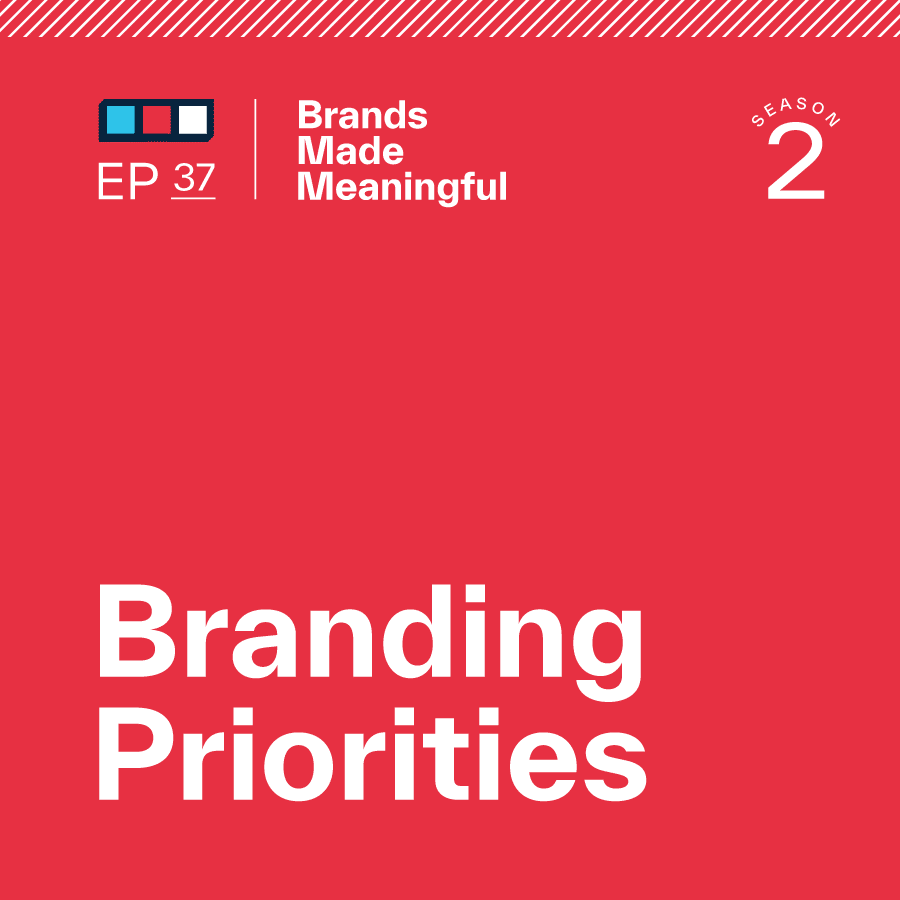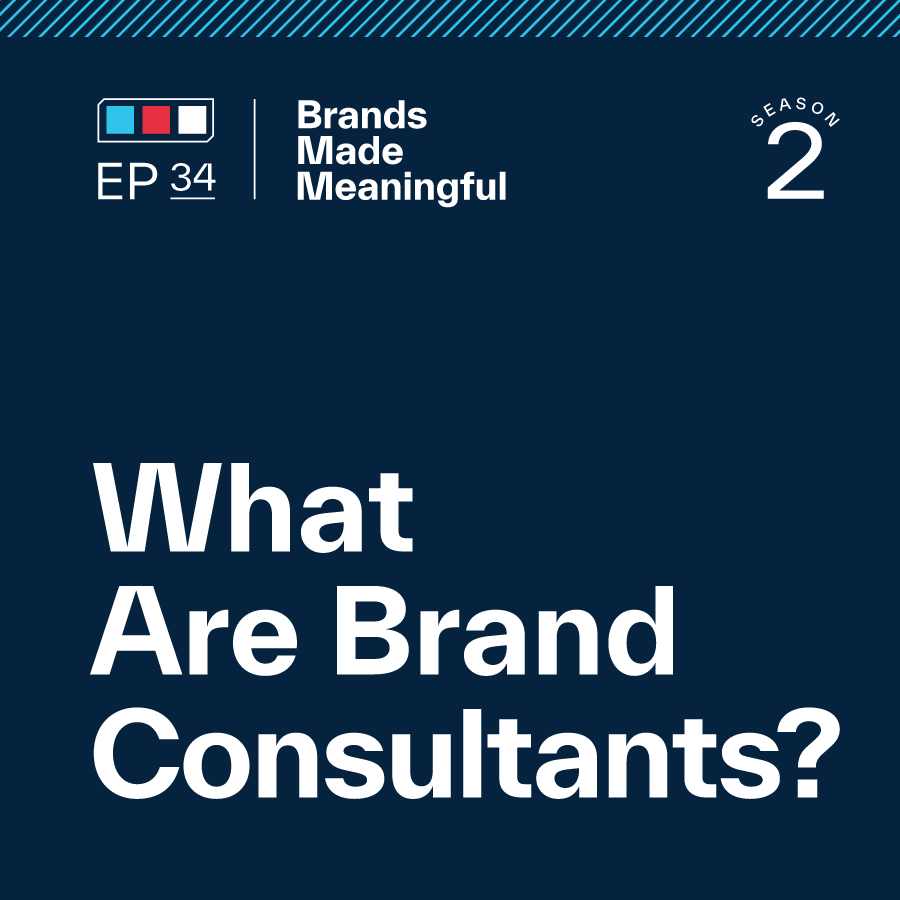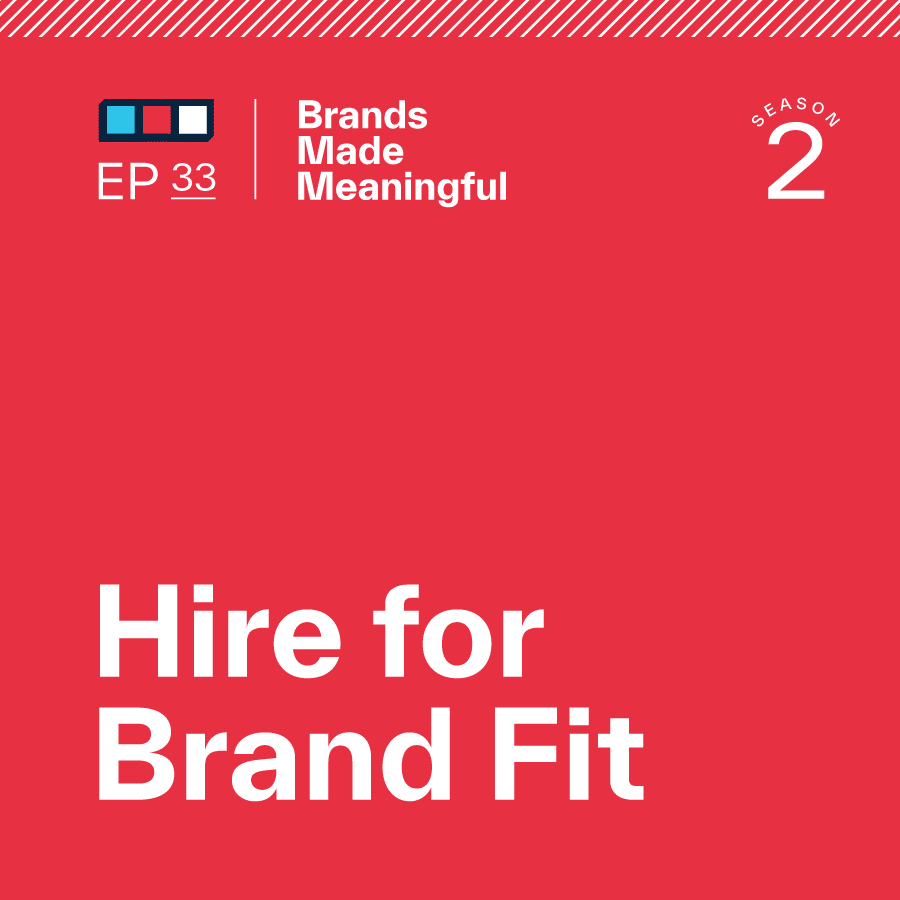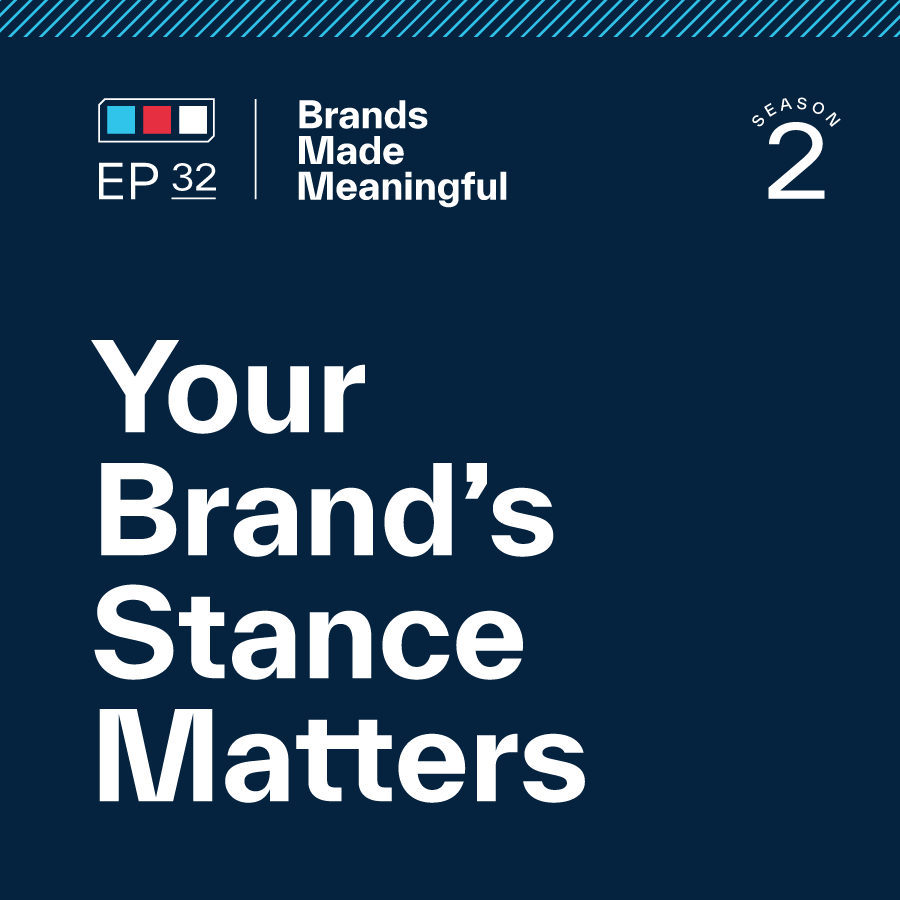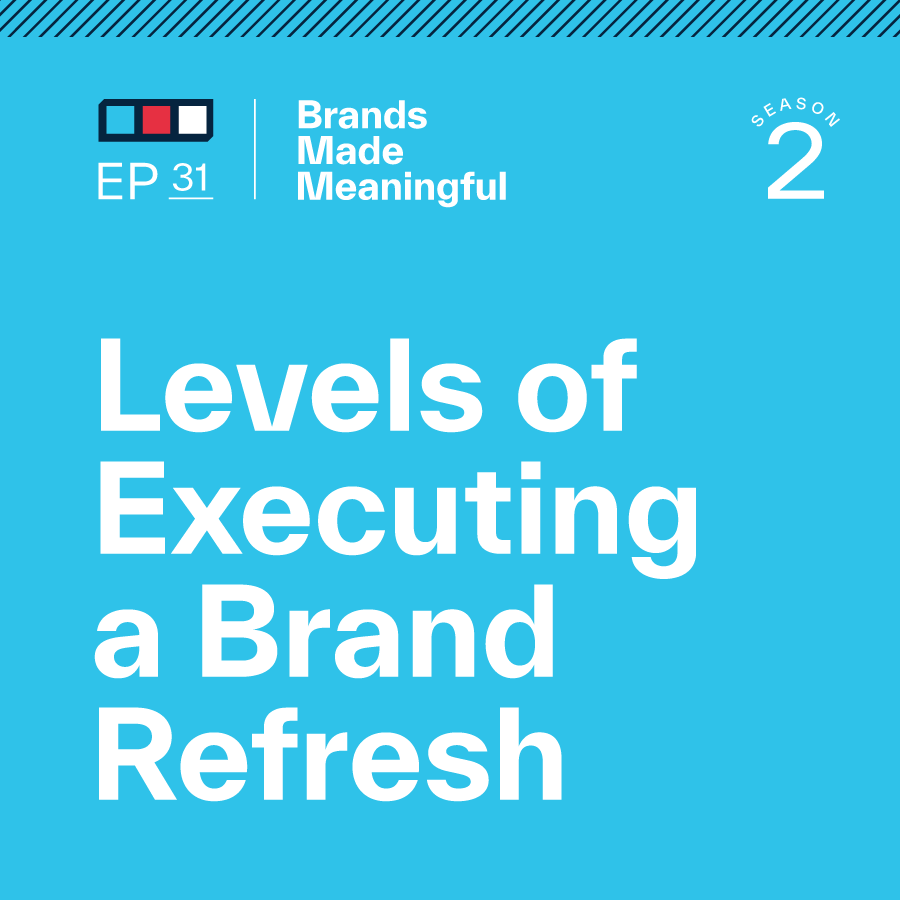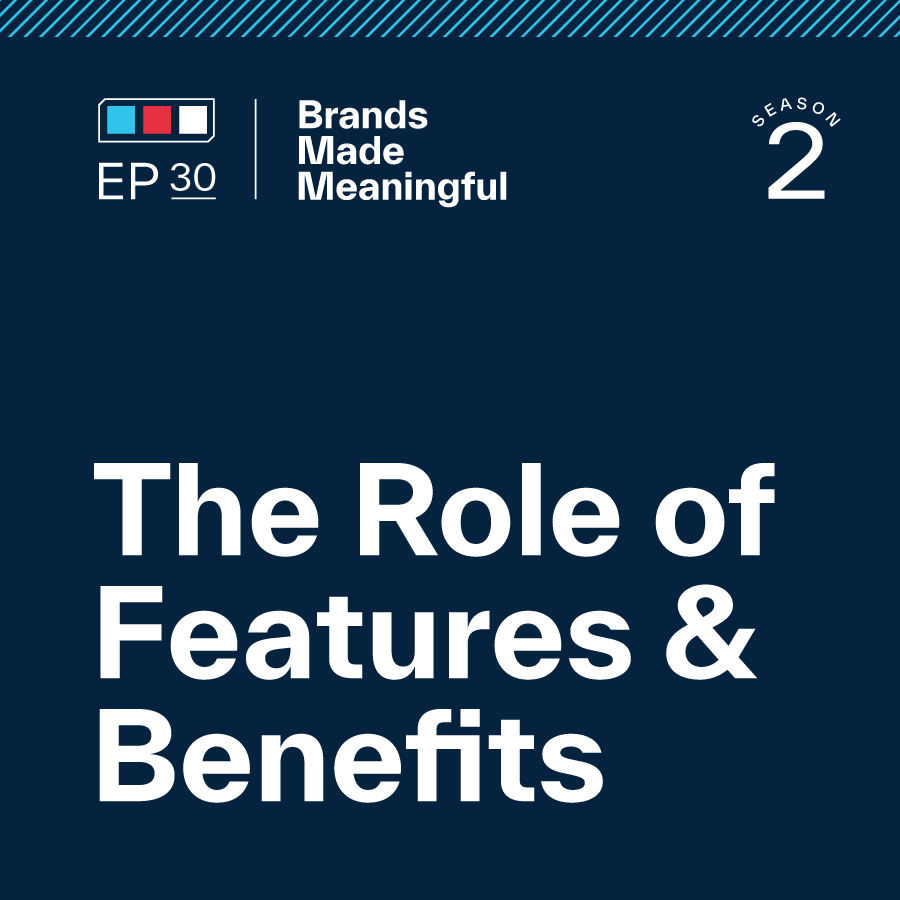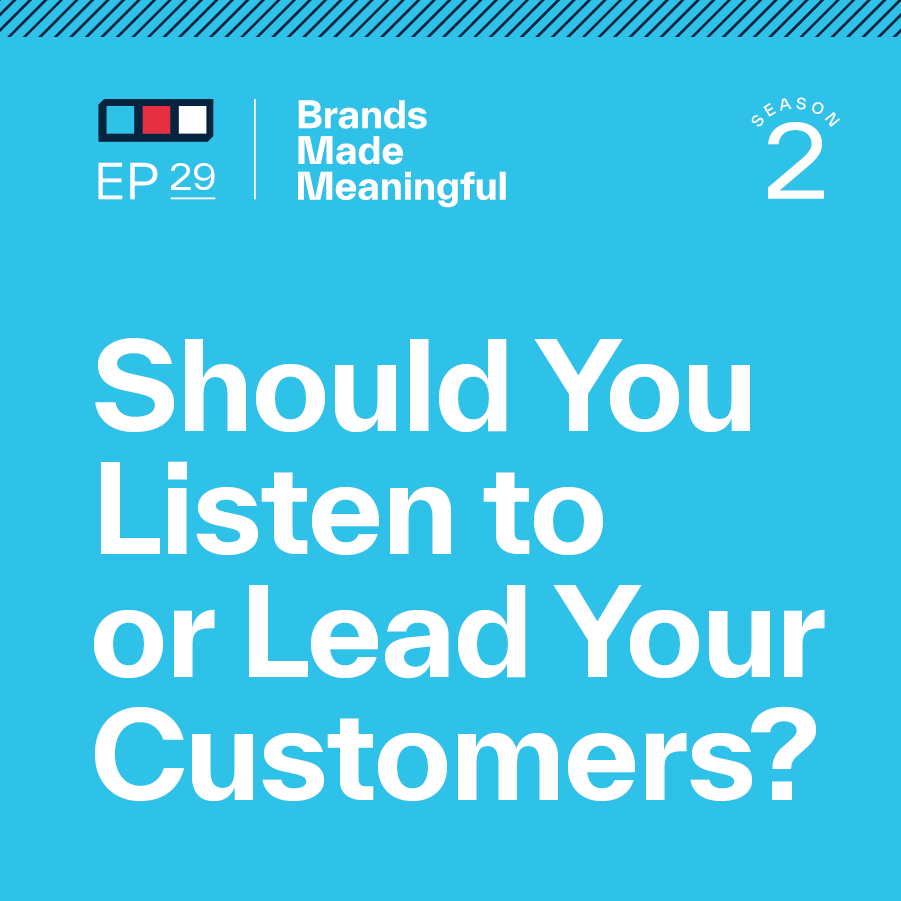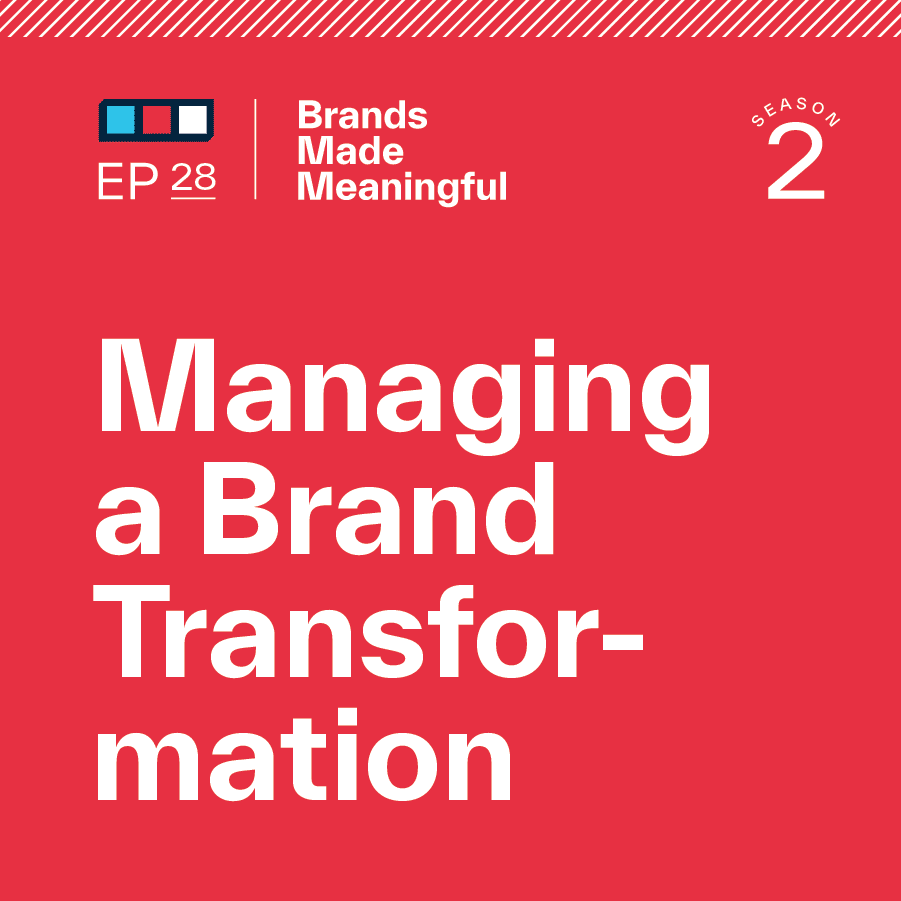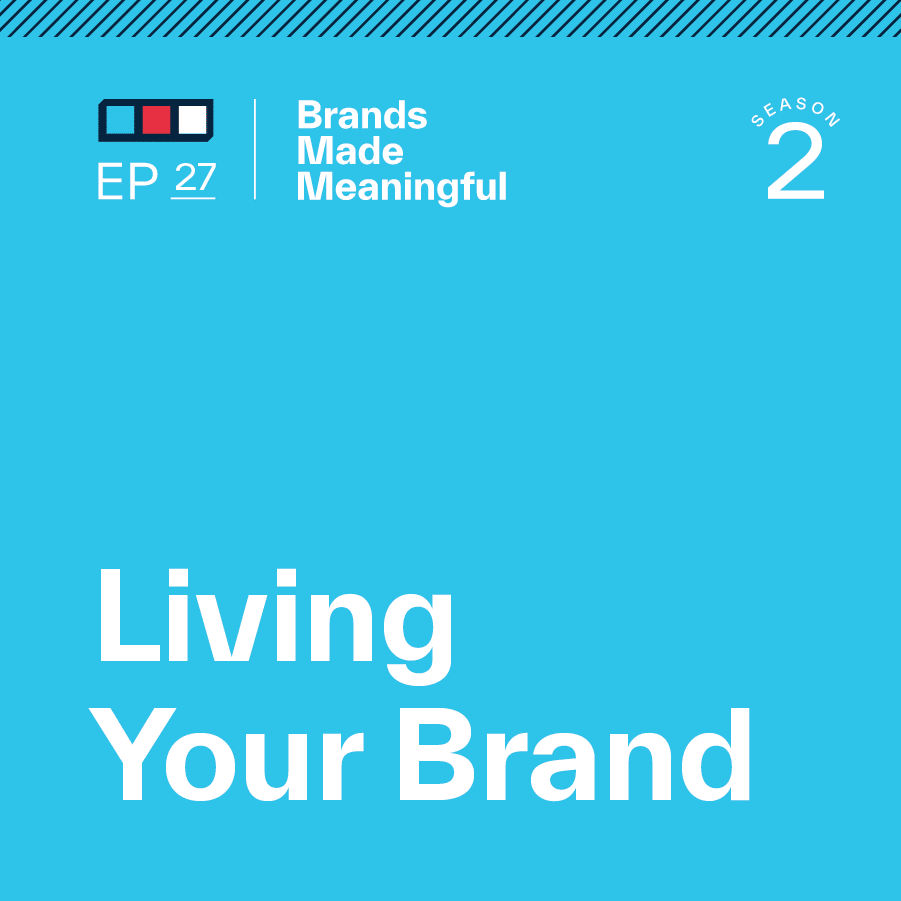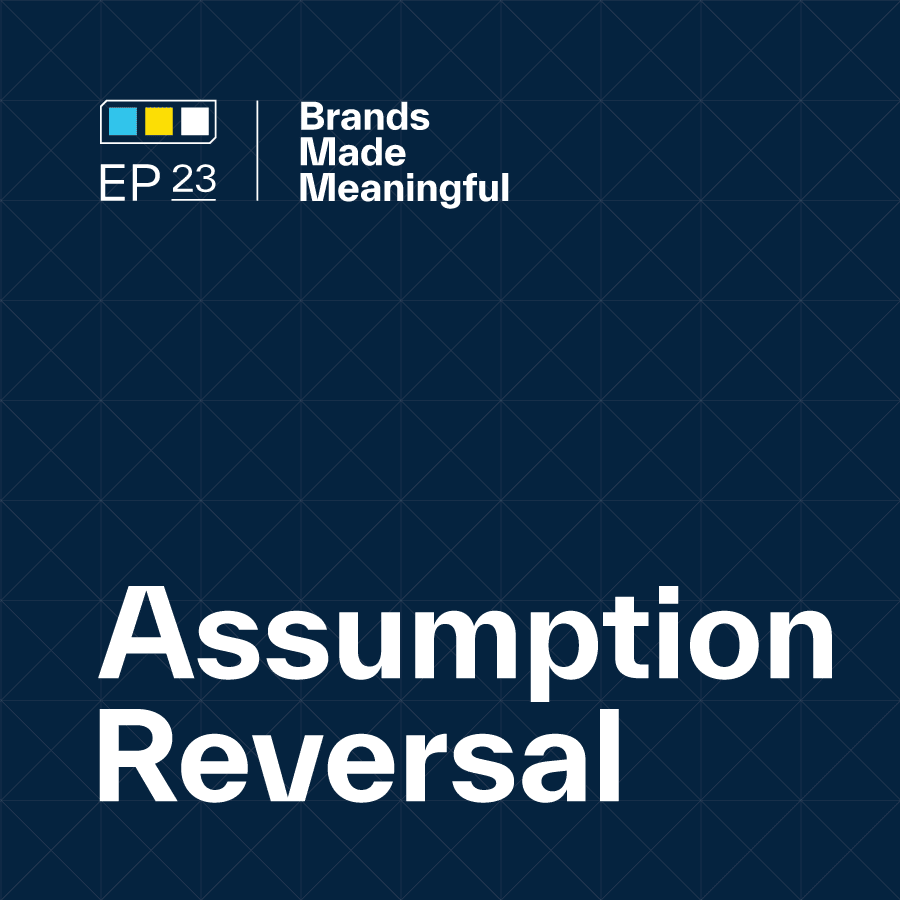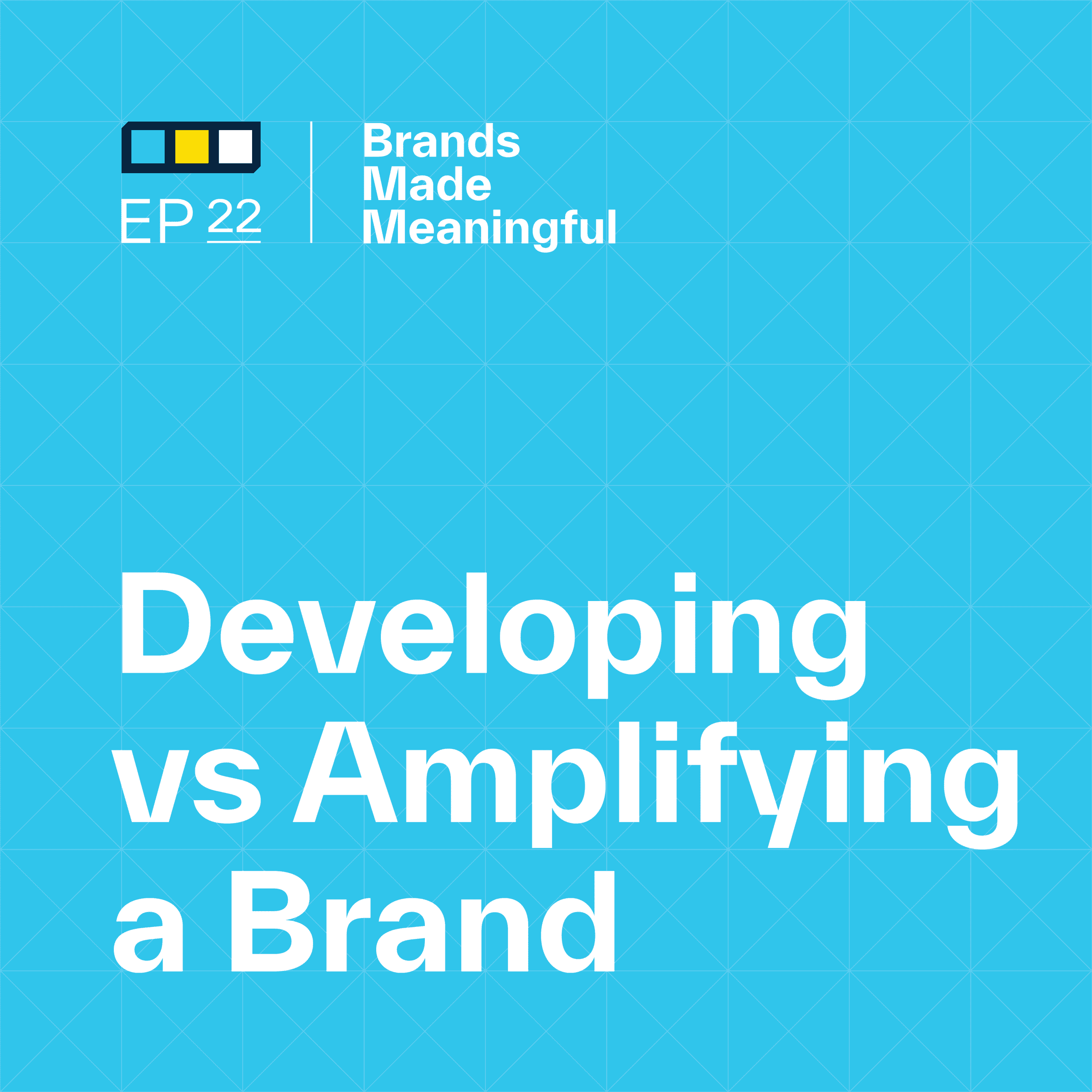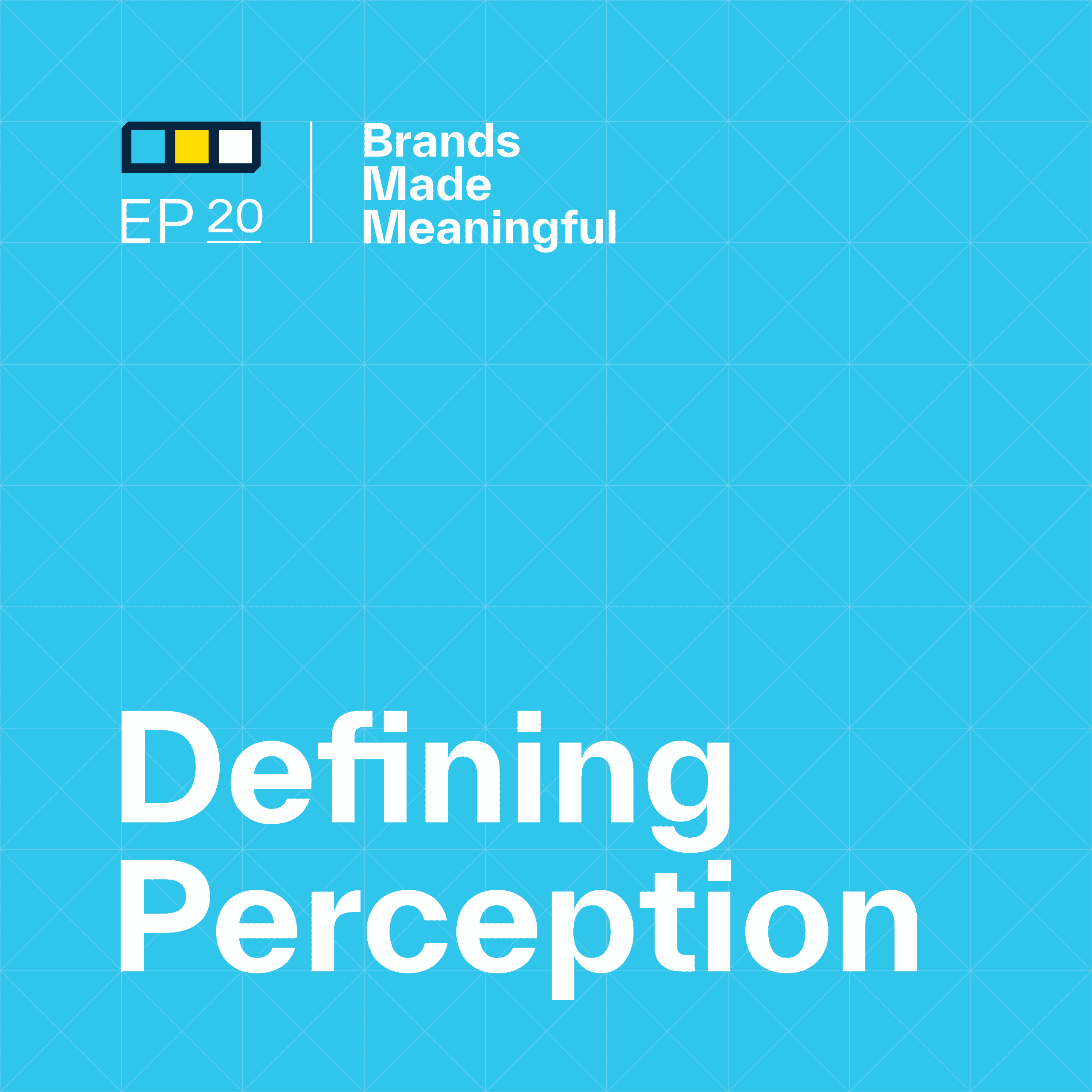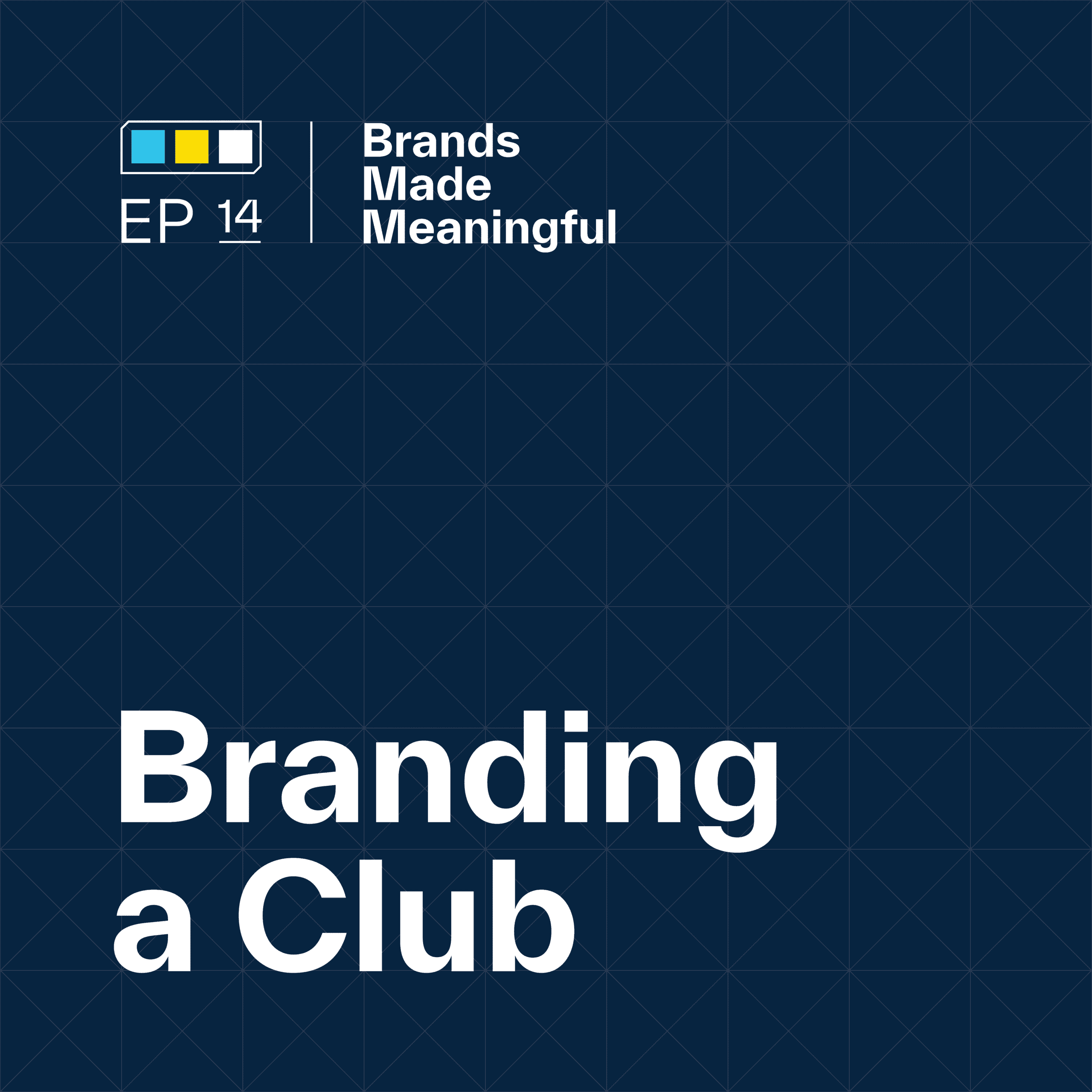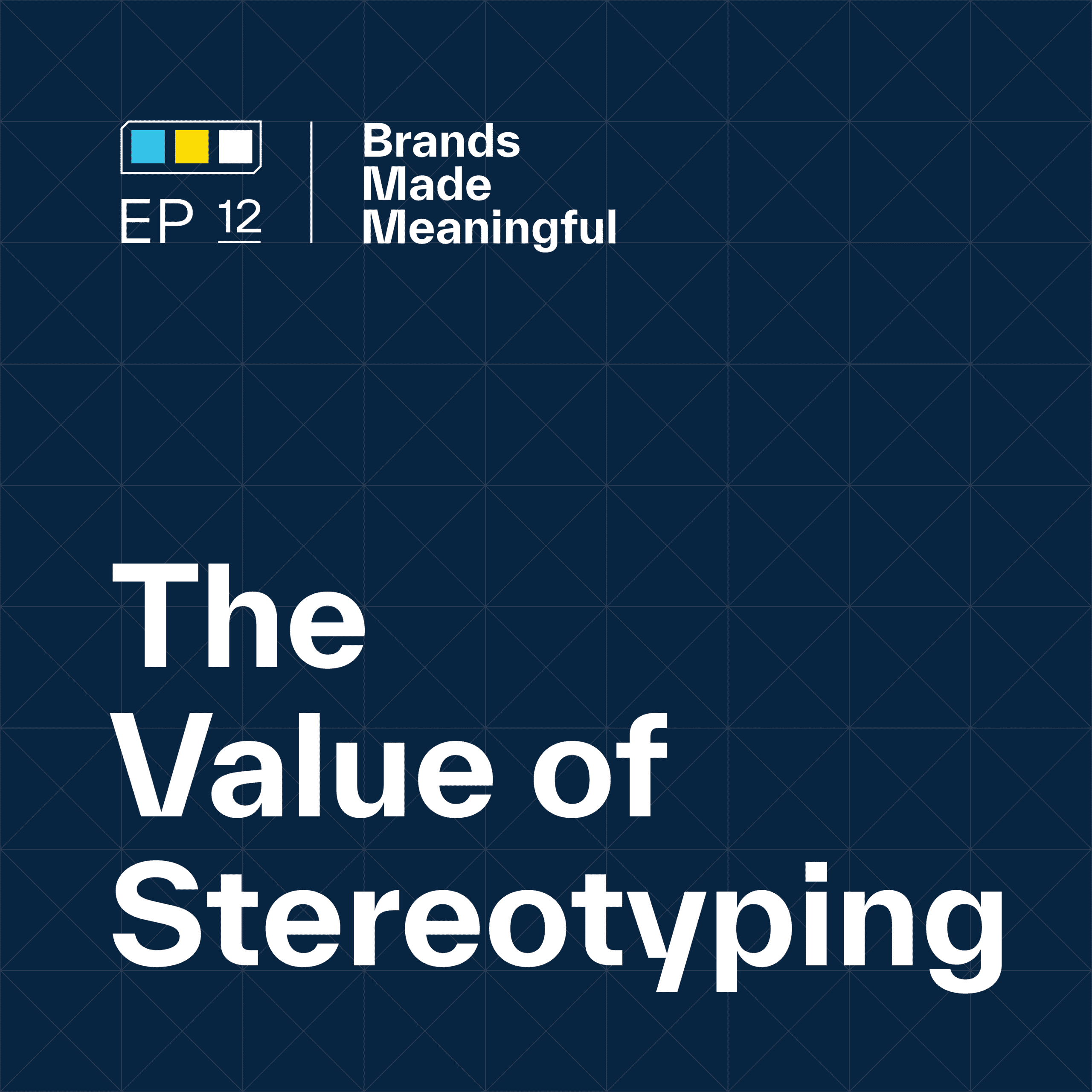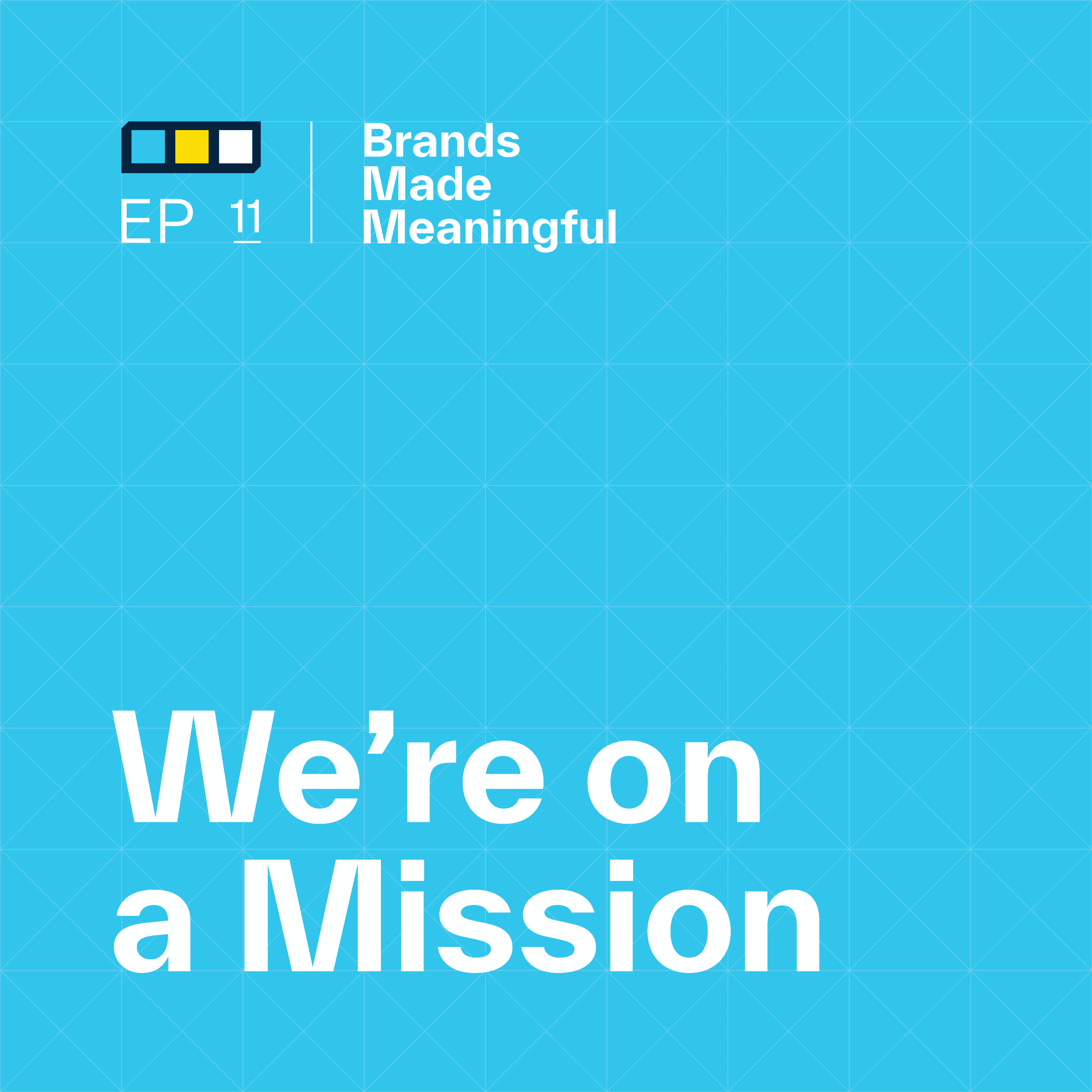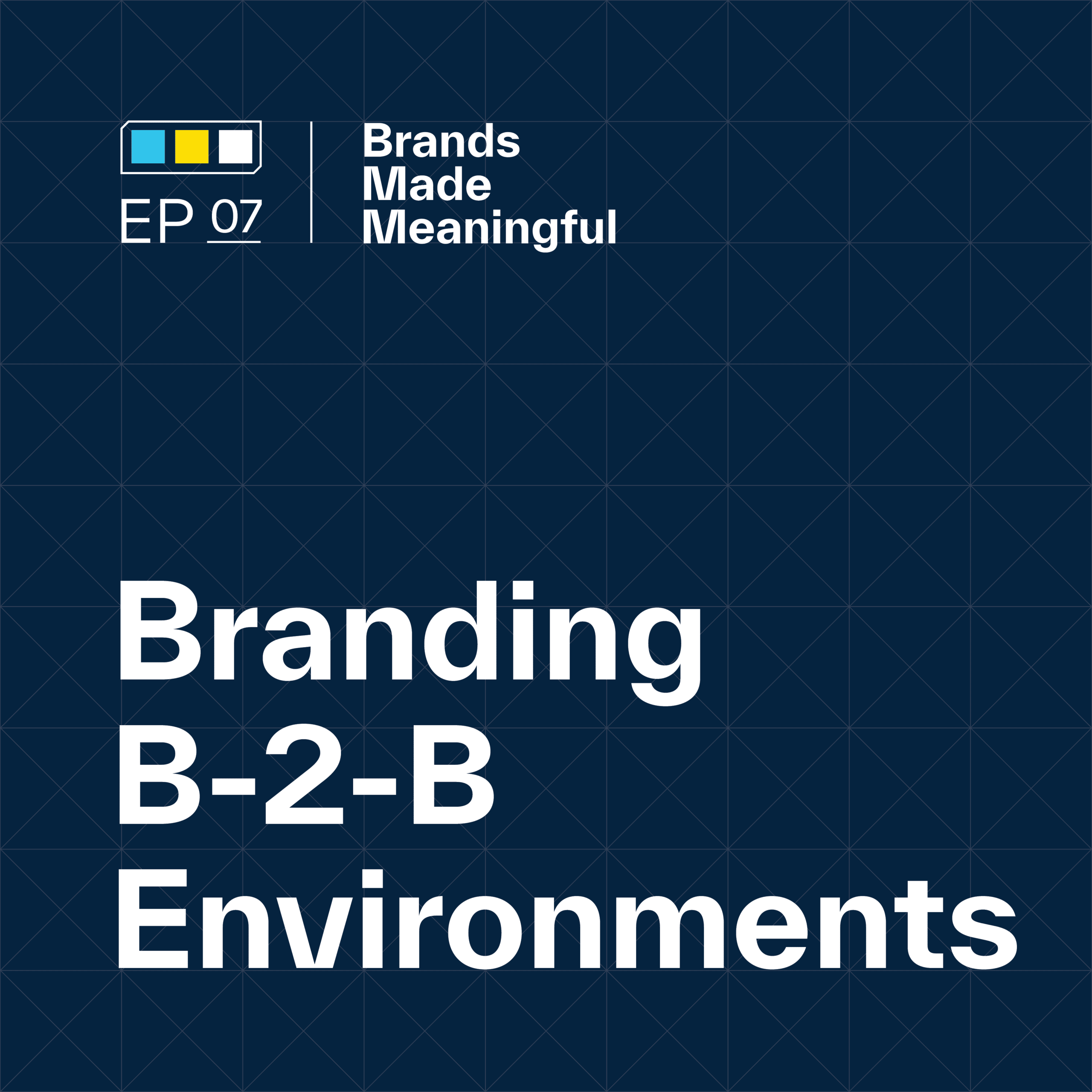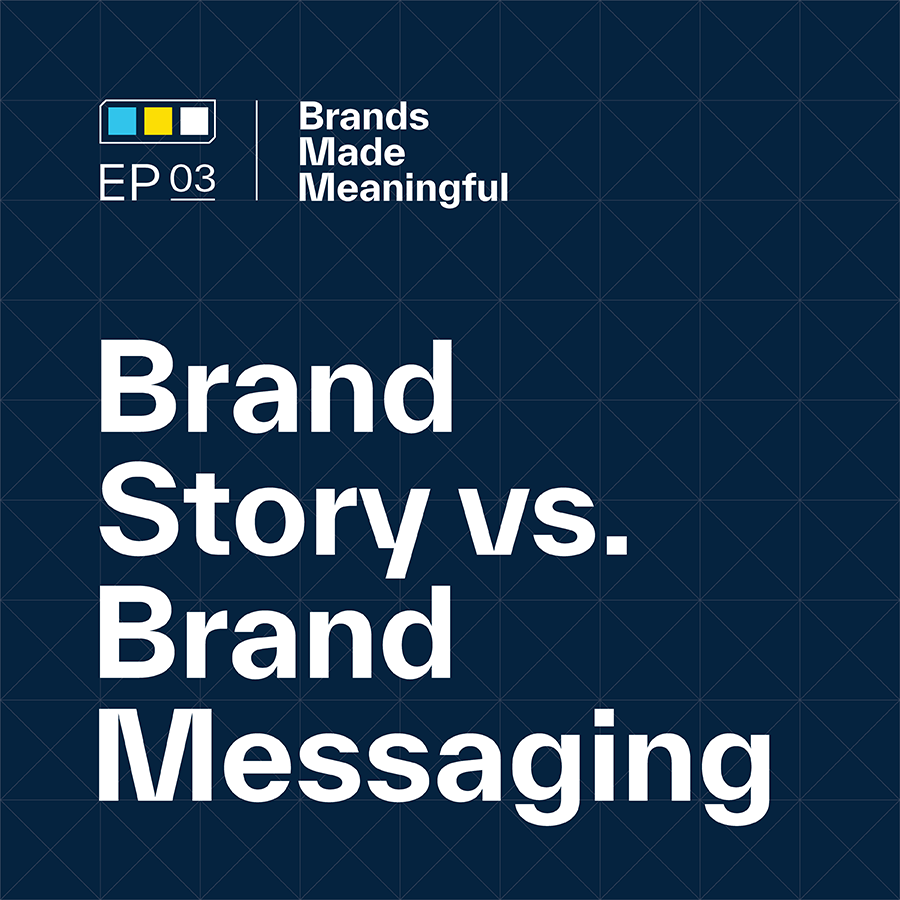EPISODE 35
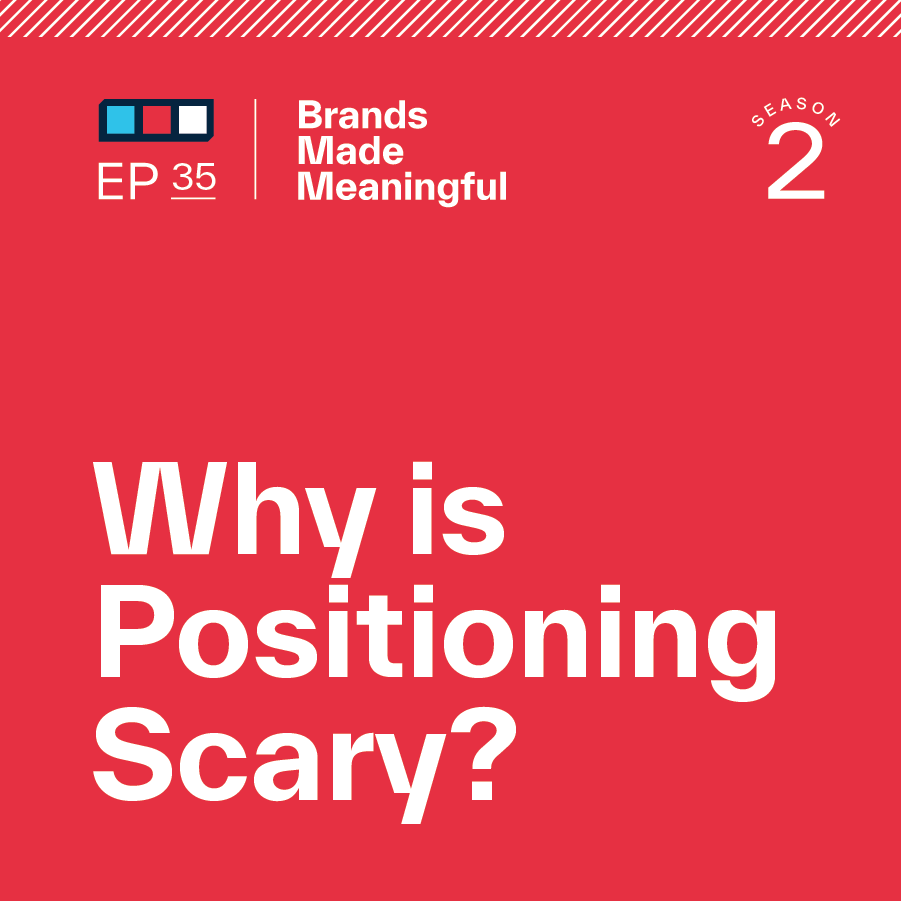
Why is Positioning Scary?
Episode 35
Narrowing the brand’s position is really a strategic decision to focus the brand’s offerings, messaging and target audience on a specific niche or segment within the market.
EPISODE TRANSCRIPTION
I think positioning is one of the most important components of any brand or branding initiative. And essentially, it’s choosing. It’s choosing what you do.
Derek It’s making a choice about who you do it for and maybe even sometimes who you do not do it for.
Expand Full Transcript
Tucker I’m going to use the definition that we have here, which is kind of jargony. Narrowing the brand’s position is really a strategic decision to focus the brand’s offerings, messaging, and target audience on a specific niche or segment within the market. So think about that as a brand that currently offers a wide range of products or they serve a lot of different customers. They have to narrow that and say that they are only going to sell to these people versus everybody.
Derek But it’s getting absolutely as specific as you possibly can. A lot of companies that we work with think that they have made a choice. They think that they have a position. And frankly, we’ve been guilty of this ourselves throughout our own years when we thought we had made a choice. Then when we step back and look at the choice or the focus that we believe we’ve made, it turns out that it’s super wide, super broad, and full service. And in the end, it’s basically all things for everybody.
Tucker Or your position is meaningless. Like if you told that to somebody, they would have no idea what you meant. We’re trying to build a position within most of our brands so that they’re recognizable to say, Oh, I work with these people and this is what I do. Someone goes, Okay, that’s not me and that’s okay, or, That is me and that’s awesome because now I get to work with you. So when we talk about narrowing a position, the positives from this is that it can significantly increase the value, influence, and impact on business goals. So think about when people go, How is a brand going to affect my business? Well, if you position properly, it can have awesome results and we’ll get into those things. But today’s conversation is about how scary it is for people that don’t deal with it daily. As I said, we take it for granted because we say, Here’s what we’re going to do, here’s how we’re going to position. And most people go, Oh my God, are you serious? Like we’re going to only go after those people? Why is that scary? Why are most people afraid of that jump or we call it the leap of faith within branding to say, How are we going to get to just narrow ourselves to stand for something specific? And how do we overcome that anxiety?
Derek One of my favorite business books is called The Wind Without Pitching Manifesto authored by Blair Ends. It should be added to your must-read list if you’re listening to this and you haven’t read it. In the beginning, in the very first chapter, manifesto number one is positioning. And he calls it a difficult business decision because it is scary because people tend to find it scary if they don’t have the ability to make this choice to decide to focus. Then ultimately you’ll truly never be positioned.
Tucker With a little bit of context here, let’s give people an example of what we’re talking about when someone says, Okay, I’m going to narrow my position. I’m scared of that. But what are most people scared about?
Derek I think missing out on opportunities, missing out on sales. If I choose a customer base that’s in this market, then I’m going to have a hard time landing business in that market over there.
Tucker And in addition to that is losing your existing customers saying, Well, what if I have a broad customer base and I’m going to narrow after this other customer base? What happens if I lose those lucrative customers over here? And that’s kind of a fear when you narrow yourself, you’re losing that base that you’ve built up over time.
Derek You’ve worked really hard to establish relationships and expertise with a very specific segment of customers. And the idea of now having those customers look at your marketing messaging or listen to how you’re trying to attract new customers to have them say, Whoa, wait a minute, that’s not me. What you’re saying isn’t what you do for me maybe. So, yeah, that’s scary.
Tucker And I don’t want to get into the solving of it quite yet, but we’ll come back to that in a little bit. The second one that I really think of, or maybe this is the third one from our conversation, is really uncertainty. There’s a lot going on in the market right now. There’s maybe a really high time or maybe it’s a really low time in the market. How do you figure that out? And I think that people get scared if it’s good or bad and say they are leaving the opportunity to go a different direction on the table. So if I do this and the market shifts, do I get caught outside in the cold? And how do I become more agile within this if I’m being so structured within my position?
Derek One of the biggest challenges with any human being, especially within business, is that ambiguity, the unknown. We just don’t know. So if you are making a choice to go after a specific industry, for example, you don’t know as you set out to do that whether or not that’s going to work. And that’s scary. That ambiguity and that uncertainty is is absolutely scary.
Tucker Another one that I think a lot of our clients come to us with as problems are the competitive pressures. The competitive landscape can be super intense for some of our clients. And if there aren’t that many brands out there vying for everyone’s attention, you narrowing your audience makes you feel a little bit like they’re winning. If I narrow my audience and I don’t go after 80% of the market, then they’re going to win that 80%. There’s this level of competitive pressure – I want to beat you and you want to beat me. And that kind of plays a role in not wanting to narrow because they haven’t narrowed.
Derek And if you choose to focus on a certain segment, you may have identified a couple of key competitors that already live in that space. And so the idea of coming into that area, staking your own claim, and vying for headspace and market space from those other established organizations is definitely a potential obstacle.
Tucker We get into a little bit of what is your right to win conversation and that’s not what today’s conversation is about, but to say, Well, what if I go into this new market and there are already people there, then we would say, Well, do you have the right to win with their customers in a way that they don’t have that right to win?
Derek Ironically, we’ll jump ahead. We’ll get into this later. It’s the opposite. When you position, you reduce competition. So, spoiler alert, this is a fear and I can’t wait to dive into why it’s not relevant.
Tucker The last one or last two that kind of fit in here is more something that has to do with service industries. But the lack of innovation from their angle, is they think that if they narrow their brand position, then that’s going to constrain their ability to innovate or their creativity within what they do. Think of us as a branding agency. If we were going to say, Oh, we’re going to narrow our position, there will be some people that will go, So we’re never going to do brands like this anymore. We’re never going to do brands with this type of feel anymore. We’re just going to build a structured process that just hammers out projects over and over and over again and every single one ends up being the same. That’s not true at all. It’s actually the opposite of what we’ve found. But it is interesting to see people go, Well, if I’m narrow, then I’m also putting myself in a box.
Derek People that are creative, people that are visionary within the business, and who like to invent, often bristle right out of the gate at the idea of focusing or specializing because they fear missing out on solving all kinds of problems for anything and everything because that’s what motivates them. It’s absolutely a valid fear. I’ve been there. But it’s also short-sighted because the problems that you get into solving get deeper and richer as you focus.
Tucker Absolutely. You just have a deeper expertise. You have more understanding of the problems to find solutions in a more creative way. It’s really interesting. So overall, as we’re wrapping up this section of the conversation, the leaders’ fears really stem from uncertainty and risk associated with not knowing what’s on the other side. It’s hard. Change is super hard. I think an episode that would be great for somebody to look back on is a change management episode talking about how we go through brain transformations and what that change management looks like and how we overcome those change management keys. Change is super hard and that is a really helpful conversation for people when they’re moving forward. But I’m thinking of the marketing leaders and brand leaders that have significant change In their world when they’ve been doing this for years or even decades. Someone who’s been working with a brand for 15 years can find it hard and really, really challenging to get over that initial thought of, We’ve always been this, we’ve always done this, why are we changing?
Derek A colleague of mine refers to a statement that I think he calls something like seven words of a dying business. And it goes something like that’s the way we’ve always done it.
Tucker And that happens all the time. And you’d be surprised how often that comes up in our conversations to say, Well, why are we doing it like this? And it’s like, Well, I don’t know. The company was established in 2002 and it’s just always been like that. It’s like, Okay, maybe it’s time for a structure change.
Derek And if somebody is at the table with us and they’re talking about their brand and they’re looking for something to change because something needs to get better, to become more successful, to find more opportunities for some sort of continuous improvement in some way, shape or form, then the part of the business that they’ve been unable to identify that needs to change to help them, in this case, is positioning. But if we’re going to make the choice to not change or to not decide, that’s okay too. But then, you know, that’s a different conversation.
Tucker And we’ll get into this in another podcast. It’s a whole other conversation. But when we say positioning, we’re not just talking about a target audience. It could be your offering changes to meet a broader audience, but your offering is more specific. Or maybe there’s some other area where we can say maybe you don’t narrow who you’re speaking to specifically, but you’re speaking about a challenge that everybody has in a more specific way. How do we alleviate the fear? So we just walk through a bunch of fears and there might be people going, yep, I told you, that’s a problem. I knew that was a problem. But what we’re trying to do here is say, No, those are all fears that aren’t true. How do we alleviate those fears? And then after this, I want to go through the benefit of doing this type of thing. So let’s go through ways someone could start feeling a little bit better about the change that’s probably coming down the tunnel.
Derek The thing that I found most helpful is to get answers to these unknown questions as best as you can. You can ask the market, you can pull data, you can do surveys, you can do research to help you understand on one hand how big the pool is that you’re currently living and working in, and also what the opportunity might be within the market where there are fewer competitors to understand what your audience is looking for and to figure out a unique opportunity to serve them.
Tucker You’re talking about conducting thorough market research – understanding the audience, understanding the market, understanding what competitors are doing and what they’re offering – just doing due diligence to say, I have a gut feeling that we’re going to try to go this way and this makes sense because we have this right to win with this type of audience. But is there an opportunity there? Are there people that we are willing to talk to? Are people willing to listen? And then the ways you go about that research are very different. But overall, doing deep market research can be super helpful for this. Another thing that would be helpful for someone going through this, and maybe they’re already midway through this type of change, and they’re like, This feels really good, but I’m a little scared because we haven’t done something like this before. How do you validate, how do you test, how do you make sure that as you’re making changes, you can conduct these small-scale experiments? And I think that really gets into having conversations with current clients. Maybe you have a new business call and you go, Well, you know what? I’m going to try some of these things. Let’s see if this position might work a little bit in some areas. Say you’re narrowing down on a certain target audience and you have an opportunity to talk to the audience in a one-to-one setting, maybe you should start pulling out some of these key positioning components and use them and see if they work, see if they resonate with them, or maybe they don’t do anything at all. And they’re like, Yeah, I just don’t care about that. And then you get an understanding of if it’s a good thing for you or not.
Derek And to follow up on that, it’s to develop those words to test, it’s to put together a communication strategy of what the messaging actually looks like and sounds like. So to actually have a statement, call it an elevator pitch or a one-liner, but to be at a networking event and to run into somebody and you get the “what do you do question”, when you answer that in language that you’re comfortable saying, that feels right, feels authentic to you, to then literally be able to look at somebody’s face and gauge their reaction or to actually get their reaction. To say, Whoa, what does that mean? That’s interesting. Tell me more. How they react is a great, very, very easy way to test it. Actually getting to that communication strategy too is to start following up on the research component, to just talk with your customers, talk with your existing customers that are in that space, people that you trust, people who trust you, who know that if you’re going to fine-tune your focus isn’t going to affect the way that you service them or take care of them in any way and ask them what they think.
Tucker There’s also a component of talking to your employees – talking to your teammates. How do you guys feel about this? What do you think the opportunity is? We’ve done all this research. We’ve talked to these people. This is what we heard. Do you guys agree? Most people who have been there a long time might get a little bit of the same feeling you had initially. A little, Oh, I don’t know about that one. Some of the new people might actually give you an insight to say, Oh, that’s actually really interesting. And the way that you’re moving forward with that is pretty good. So what you’re talking about is just having an open dialog with people about what we’re doing, what we’re trying to accomplish. What do you think? You’ll be amazed by what you hear. We have a couple of projects where we’ve worked on this and said, Hey, we’re trying to do this and this is the direction we’re going, and here’s who we’re servicing. And you would be amazed that the target audience comes back and goes, That’s awesome. That’s exactly what this industry needs and no one does it. And we’ve had that validation. And that not only makes it easier for us to keep moving forward with a client in that direction but it also gives them the confidence to start being more creative within this position too, to say, I’m not holding myself back from going this direction. I go, Absolutely, this is how we’re going forward. You’ll be surprised that they’ll start making decisions that are far more positioned than you’re even going to suggest initially. And I think that gets into this confidence in moving forward and being a comfortable thing. Effective communication is crucial for brand projects, brand transformations, and brand positioning for sure. Having that comprehensive communications plan that explains the reasons behind a strategic shift can help not only communicate things internally but just gives you that clear confidence to say, we do have a plan, we are moving forward and this is how we’re moving forward in a certain direction. There will be people that don’t agree with that, and that’s okay.
Derek But the momentum that we’ve witnessed, especially internally with team members, with staff – we’ve had people, companies we’ve worked with, where we’ve helped them kind of clarify where they’re going and what their focus is. And we’ve had employees basically say, Finally. Now I know where we’re going. Now I get what we do. Now I understand. For them to be able to see themselves in that role in the way that they’re helping reinforce this and now you’ve given them the language to know what it is that this business is focusing on, who its customers are. Sometimes they’re carrying just as much ambiguity and have just as many fears as you do. So to get them on board and to ride their momentum can be incredibly powerful.
Tucker If all of those things that we’ve talked about don’t help them at all – they’re like, Yeah, I’ve done the market research. I’ve done all this. I have a good statement and I’m still uncomfortable with it – I think the next step would be to look at your brand’s purpose, look at your values, look at all the guiding principles that you have, and say, Why do we exist in the first place? And does this new idea, this new position that we have, meet that kind of purpose? Why did I want to work here? Why do I want to lead this company? Why do I want to serve certain clients and not other clients? And does that go back to the purpose of the brand? Is that personal? Is that organizational-wide? I think that that kind of clarity can help people understand if the gut feeling that they have is only internal for them, or if it’s just internal for the company to say everyone’s kind of feeling weird about this, or is it just you?
Derek These are the guiding principles. We’ll call these the brand foundational elements that help you validate any decision that you make. So somebody can make the mistake of choosing a position that ends up chasing a bright, shiny object that’s outside of, say, their real expertise or authority or of an area that they can win because it is a trendy thing that’s happening in the market and they want to make sure that they grab on to as much of it as they possibly can when it’s either going to be a distraction for the organization or not a right fit. And being able to go back and look at the actual brand strategy of the business, why we do what we do, and what it is that we’re trying to do can be a really, really clarifying North Star in choosing how to position or what a position could be for you.
Tucker The last one – and I know that even people here internally would say, Shut up, Tucker. You don’t know anything – would be to embrace flexibility. Just embrace the fact that things change, embrace the fact that we’re always moving forward. The market is shifting. We need to be on top of this. We need to be agile, we need to be flexible with how we see ourselves, how we see our audience and the way that we see our offering. And sometimes that’s a lot easier said than done. That’s why I would say some people would roll their eyes at me. But that can be hard for a lot of people. But for other people, if they just realize that 20 years ago their market wasn’t the same thing as it is today, why are they the same? That doesn’t make any sense. We need to change our position.
Derek We have more experience and authority now than we did 20 years ago. What is it that we’ve either intentionally or, I don’t know, accidentally been working on over the last 20 years that now we’ve ended up with enough experience that we have the right to win in a position? It’s kind of like buying a house. I think there was a point when my grandparents bought a house that that was it, that’s where they put down their roots and that’s where they were going to live for the rest of their lives. I don’t think it works that way anymore. A brand is a living organism. It’s living, breathing and it needs to adapt and adjust based on a variety of factors. And so nothing’s permanent. So our position doesn’t have to be permanent. It can change, it can be refined.
Tucker Think about a brand that was established in the late eighties or even the early nineties. Think about how much has changed since then. If the way that you speak, the offering that you have, the customers that you deal with, if that’s all the exact same from 30 years ago, there’s probably a different opportunity out there for you or at least a more strengthened opportunity for you.
Derek There are organizations that exist today whose products and services are completely different than they were in the early 1980s because the world’s changed. Had they not shifted their position and thought innovatively and embraced change. like many of those other businesses, they’d be out of business now.
Tucker So by going through those things like market research, having an open dialog, being able to reference back to your guiding principles, the way that you can embrace flexibility, and the way that you can develop communication strategies that help, you can talk about these things. That’s really helped them gain confidence to become more comfortable with the idea of narrowing their position. It can allow you to make more informed decisions. It’s going to allow you to align the brand more effectively. Think about when you talk to all these new target audience members and you go, Hey, we’re trying to do this. And they go, Oh my God, that’s awesome. This is exactly what we need and here’s why. That helps you narrow your messaging. Think about all the more meaningful ways you can now talk about what you do and you just have a more clear path for sustainable growth and differentiation in the marketplace, which is just leading us into the next section of this which is, What is the benefit? Why are we doing this?
Derek Why should I choose to choose? Why should I choose to focus? You know, it’s a lot of effort. It feels like a lot of work. Help me understand what some of the benefits are. There’s a quote that a colleague forwarded me. We were having a positioning conversation just the other day. And I have to give credit to an author named John Nimmo who wrote, It’s more appealing to our potential clients when he or she feels like you only work with someone just like them. So top of my list is we enhance our differentiation and we reduce our competition. We work to establish our uniqueness so that we’re different and more effective in competing with anybody else that’s vying for the same audience.
Tucker We have a value proposition that resonates super strongly. Our offering, the value that we give to someone is built specifically for them. It is not made for anyone like you. It’s made for you. That’s a different kind of feel. There’s a different type of swagger you can have walking into a new business meeting or selling to a client or even selling to a customer with products to say, We know that you need this. We know because we only deal with people like you and your needs have changed over the last ten years and so have our products to meet those needs.
Derek The analogy that I default to all the time is if you have a plumbing emergency and there’s water spraying around in your home somewhere, do you call a licensed plumber, or do you call a general contractor, or do you call a handyman who dabbles in a little bit of anything and everything from sheetrock to changing window panes?
Tucker Some people would say they call the first person that can come. It depends on the problem. I think that’s super valid to say, I have a problem. I need to solve it right now. I need to solve it quickly. I need to make sure it’s done right. Do I call someone who says they do this for anyone and everyone that comes in their door? Or do I do it for someone that says, No, I work with people with the exact same problem that you have in the exact same industry you have doing the exact same things that you do? That’s why I said it’s like swagger, it’s confidence, it’s to give you that level of potential to say, I can do this, I do this, and this is why.
Derek It gives you the right to leverage your market authority. You even then start to build that reputation. You start to build the brand to be known for this expertise.
Tucker So you’re getting to another point here. So that’s to increase the market authority. It’s really great to have this idea of what we are known for, what we specialize in, and what areas we have credibility and authority in. How do I get someone else to sell the products and services that I sell? But they do it for me because they’re telling everyone they know who has the exact same problem I do.
Derek I have a problem and I’m looking for some help. And to have that third party say, Oh, there’s only one company that you need to call, and it’s that one because that’s exactly what they do.
Tucker We work with a lot of B2C clients. We work with a lot of B2B clients as well. But the differences are interesting. When you narrow your position within B2C, it makes it easier for you to convert those potential customers quicker into your products. It makes it easier for them to identify with you. You might even be able to demand a premium price for that. Similar things happen in B2B, but there’s also this level of B2B that we’ve found really interesting where the industries become incestual and that’s a weird word to use on this type of podcast. But when I’m talking about that, I mean that people in an industry tend to communicate, they tend to congregate together, they tend to have conversations, they tend to say, Hey, I worked with this person. Who did you work with? Oh, I worked with that person. And they help us. They help people just like us. And that kind of B2B reach within the positioning angle is super powerful to say, How do we start that engine moving in a direction? But then it kind of starts running itself because people are already telling the people that they know with the exact same problem that you can help them because that’s exactly what you do.
Derek And the beauty is they’re communicating to each other in a way that you actually want your business communicated or described. If you’ve positioned yourself well with that person who is passing out the referral when they are spreading your name or sharing your name with one of their colleagues, then they’re not saying, Oh, by the way, they’re super fast, they’re super cheap, and they focus on something else that you actually don’t need. They know what you do because you’ve probably done it for them and they’re as good at messaging what you do as you are.
Tucker It works in a very similar way with B2C brands. Let’s say you have a product that goes to a dad who buys training materials for his daughter who plays soccer. But then you have her friend over and her dad comes over and they say, Oh, what’s that training thing? That’s pretty cool. And you go, Oh, I got it from this company. And they just build training products for women’s soccer. And then they go, Wow, that’s really interesting. And they look you up and they buy from you. That kind of momentum is market authority. That kind of momentum is relevant. That’s something that resonates and then helps them. Not only have you helped them identify, but now they’re identifying for other people to say, Oh, you have a daughter that’s in soccer. You should look at this company that builds women’s soccer training products for kids just like your daughter. You don’t get that kind of power by just telling people. You need to build a brand around that kind of position.
Derek Jumping to one of our other benefits is improved customer advocacy and loyalty. That also takes into the assumption that those products are great, that your service is top-notch, and that the experience that the customer had with you was fantastic. So I’m just going to take for granted that you’re crushing it on all those points. But when you do, you really have the opportunity. When you turn a customer into a repeat buyer or into a brand advocate who’s actually selling your products and your brand on behalf of you without you even knowing it, you’ve really reached a high point in brand positioning.
Tucker Another great benefit of this is a stronger brand identity. So when we talk about stronger brand identity, we have a more coherent, focused brand that someone can easily identify with. That’s going to be easier when you narrow your position because you’re building that brand just for them. You’re not building it for anyone and everyone coming through the door. The flip side of this is that there’s going to be a lot of people that don’t like it, and that’s okay. Let’s say you’re going to do a new brand and your wife doesn’t like it and she just goes, Yeah, I just don’t like this brand. And you’re like, Well, it’s not for you. You’re not a customer. That’s okay because I’m not trying to attract you because you maybe work in a different field and do something different. You’re just not my audience, and that’s okay. I think that’s really hard for a lot of people. They go home to a spouse and say, I don’t like this, and maybe their husband goes, I don’t like it either. You’re totally right. I don’t like that. And that kind of fuels this fire of, Yeah, but guys, this isn’t for you. This is for someone else. So get yourself into that mindset. When you do get yourself in that mindset, you get yourself into that position, you build a brand that’s incredibly strong and attracting the people it’s supposed to be doing it for. Think about that. The purpose of the brand is to attract that person. Not everyone.
Derek Exactly. There are a lot of really strong brands in the market that aren’t for me. I respect what they’re doing, but I don’t wear them or rep them because I’m not the target market. And that’s okay.
Tucker I golf outside of work and I do all this stuff and there are tons of golf brands, but there are tons of golf brands I don’t like at all. And I’m like, Oh, I can’t believe that. I would never wear that. I would never use their products. I would never do all that stuff. But it’s not for me. And I might be a golfer and they might be a golf product, but they are a golf product for a specific golfer, not for my category of golfing.
Derek And when you have built that identity that’s now strongly aligned with a specific niche, it makes marketing and messaging so much easier and so much more effective. You’re throwing to a dartboard with one or two rings on it now, instead of a dartboard with hundreds or thousands or thousands and thousands of rings and hoping that something connects somewhere and hits and then maybe trying to understand why something worked. Imagine having to have one super watered-down generic elevator speech that told everybody and anybody everywhere what it is that you do, how much harder that is than to literally talk to one person who specifically is exactly who your products and services are for and why it will help them.
Tucker When we work with some specific clients, they come back and say, I just need more sales. I should just hire more salespeople or I should just have more products because then I’ll have more sales. And I think our point is how to focus on a higher conversion rate rather than a higher amount of volume. And I think that that’s found great success. You might only have the amount of time to talk to this many people. So if you only have that amount of time, instead of hiring more people which takes more resources and allocation and still water you down anyway, how about we narrow yourselves so you increase the rate at which you can close those type of projects or you can close the sales or convert the customers and make it easier for you instead of just saying, No, I’m running into this wall, I just need more people to run into the wall with me. Well, maybe let’s just build a door and walk through it.
Derek I think of just the very kind of traditional sales approach of making 100 calls to get to ten meetings to maybe close one sale. Imagine how much more effective that would be if you knew right off the bat that all one hundred of those calls were actually absolutely right-fit customers. Maybe you don’t then need to call 100. Maybe because these people are actually looking for what you do, maybe it takes 50 calls to get to five meetings to get to one sale. And now the messaging and the marketing that you put together to target those people are that much more specific and that much more apt to stand out specifically to them instead of getting lost and watered down with all of the other noise that they’re being marketed to.
Tucker And the people that you sell to are more loyal and they tell people just like that. It’s like this machine that just kind of starts moving and all we have to do is decide which direction to move it in. Because it can’t just go in every direction. There’s more but I don’t think that we can dive into every single thing. I think the big takeaway from this entire conversation is that positioning is scary. It is frustrating. It is something that if you have years of experience with your current brand, it can be something that you’re really uncomfortable with. And that’s okay because it happens a lot to a lot of people. But narrowing your position, especially within a market or an audience or even an offering, can significantly increase your brand’s value, your organization’s value, its influence, and its impact on what you’re trying to accomplish.
Derek It’ll make your brand more relevant. It’ll help your brand resonate more effectively. And ultimately, positioning and choosing a focus, I believe wholeheartedly, will make your organization more successful in your marketplace.
Tucker So if you have any questions about positioning, if you have concerns, if you’re scared and just want to talk to somebody and you’re like, God, I’m really thinking this is a good idea, but I just don’t know, give us a call. If you don’t have concerns, you don’t want to work with us, then still give us a call.
Derek Positioning can feel like you’re closing doors on opportunities, but in fact, you’re actually oftentimes opening a whole brand new set of doors with brand new opportunities that you have a right to win. So let’s go find those.
Tucker All right. Until next time.
Derek Thank you. Sussner is a branding firm specializing in helping companies make a meaningful mark, guiding marketing leaders who are working to make their brand communicate better, stand out and engage audiences to grow their business. For more on Sussner, visit Sussner.com.
More Episodes Like This
Reclaiming Reputation Through Brand RevitalizationEpisode 85
Derek and Tucker discuss the potential that a branding initiative can have to restore a club’s reputation.
Branding The Club with Don KovacovichEpisode 84
Don Kovacovich, GM of The Club at Golden Valley, joins Derek & Tucker to discuss the impact that rebranding has had on his club and the opportunity it presents for other clubs
Changing a Club’s Membership ModelEpisode 83
Derek and Tucker discuss key considerations and challenges when changing your club’s membership model.
Connecting a Club with its Story with Jackie CarpenterEpisode 82
Derek and Tucker are joined today by Jackie Carpenter, author of People First.
Branding a Club AnniversaryEpisode 81
Derek and Tucker discuss the unique opportunity presented by milestone and anniversary dates for private clubs.
Private Club Storytelling with Ricky L. Potts, Jr., CCMEpisode 80
Derek and Tucker have the pleasure to speak with Ricky L. Potts Jr. about how powerful storytelling can be for your club members.
Opportunity in Club Facility RenovationEpisode 79
Derek and Tucker discuss pivotal key moments in your legacy and how to transform your story through renovation.
The Evolution of Club Members with Jon LastEpisode 78
Derek and Tucker are joined by Jon Last from Sports & Leisure Research Group to discuss the evolution of club members.
Member Branding vs. Product BrandingEpisode 77
Derek and Tucker discuss the challenges their client's have moved through when approaching differing styles of branding.
The Role of a Private Club's LogoEpisode 76
Derek and Tucker take a look back on private club logos they've designed over the years and explain the strategic reasons behind their choices.
Club Brand GovernanceEpisode 75
Derek and Tucker divulge the steps to evolving your brand while retaining your core values.
Seasonal Member MerchandiseEpisode 74
Derek and Tucker take a look at crafting specific merch to celebrate landmarks and special times of the year.
Who is Sussner?Episode 73
Derek and Tucker take a break from talking shop to talk about who they are and what they stand for.
Club Identities Beyond AmenitiesEpisode 72
Derek and Tucker discuss what it takes to stand out in unique ways for your club.
Little Things Mean EverythingEpisode 71
Derek and Tucker take a look at the often missed and easy to overlook.
Build Flexible Brand SystemsEpisode 70
Derek and Tucker break down the building blocks for long lasting branding.
The Club at Golden ValleyEpisode 69
Derek and Tucker take a close look at one of their recent rebrands.
When to Launch a Club RebrandEpisode 68
Derek and Tucker break down how to find the perfect timing when launching a club rebrand.
Steps to Launching a Club RebrandEpisode 67
Derek and Tucker break down the steps to take and the reasons why you should consider a club rebranding.
Brand Marketing vs. Brand DesignEpisode 66
Derek and Tucker define the line between marketing and design and how they intersect to inform one another.
Building Brand GuidelinesEpisode 65
Derek and Tucker show us how to build infrastructure guidelines to unify your brand experience across the board.
Club Identity SystemsEpisode 64
Derek and Tucker cover what Identity Systems entail and how to discern between internal and external methodologies.
Navigating Branding With a BoardEpisode 63
Derek and Tucker bring clarity to uniting your company under one cohesive vision.
Putting a Committee TogetherEpisode 62
Derek and Tucker assemble your need-to-know facts when putting together your committee.
The Guiding Principles of Private ClubsEpisode 61
Derek and Tucker go over the top ways private clubs can find the balance between pleasing old members while attracting new ones, all while making moves towards the future.
How Color Affects PerceptionEpisode 60
Derek and Tucker cover how to best convey your business with color.
Brand EcosystemsEpisode 59
Derek and Tucker break down how to craft effortless experiences when considering your brand as a whole.
6 Types of Brand TransformationEpisode 58
Derek and Tucker dive into 6 distinct types of transformations for a wide range of brands.
Tournament Branding For ClubsEpisode 57
Derek and Tucker discuss designing and delighting your club members with tailored events.
Brand Promoters & DetractorsEpisode 56
Derek and Tucker discuss how high level promoters increase your NPS and how to turn the tides on your detractors.
The Loudest Voices in the RoomEpisode 55
Derek and Tucker talk about gathering feedback while prioritizing every voice.
Determining A Primary AudienceEpisode 54
Derek and Tucker discuss if and when you should be honing in on your audience vs. casting as wide a net as possible.
Branding For ExclusivityEpisode 53
Derek and Tucker discuss the intricate process of naming your brand.
Measuring Brand SuccessEpisode 52
Derek and Tucker discuss how we measure our success in branding and a few key KPIs that help us understand our impact.
Branding For ExclusivityEpisode 51
Derek and Tucker breakdown how brands can create the perception that they are exclusive and only for a certain type of consumer.
What Makes A Brand SurprisingEpisode 50
Derek and Tucker break down the Sussner formula that we believe leads to a surprising brand.
Breathe Life Into Brand TraditionEpisode 49
Derek and Tucker discuss the intricacies and common pitfalls of branding for Private Golf Clubs.
They Key of Visual DifferentiationEpisode 48
Derek and Tucker break down the importance of differentiating your brand on a visual level.
Branding For Private GolfEpisode 47
Derek and Tucker discuss the intricacies and common pitfalls of branding for Private Golf Clubs.
Dealing With An Identity CrisisEpisode 46
Derek and Tucker breakdown how to identify and remedy a brand's identity crisis throughout thoughtful and intentional brand management.
Branding vs MarketingEpisode 45
Derek and Tucker discuss the differences between Branding and Marketing and how to make the two compliment each other.
Build Your Brand's FoundationEpisode 44
A brand's foundation is a critical element in being successful in the long-term.
Building a Constructive Branding ProcessEpisode 43
Derek and Tucker break down the steps required to build the most constructive and meaningful branding process.
What Makes a Brand Relevant?Episode 42
Relevance is a key piece of a brand's identity for creating clarity and connection.
Your Right to WinEpisode 41
Derek and Tucker discuss the “Right to Win” and the odds of your brand's success within your target market.
An Intro to Sub BrandingEpisode 40
Derek and Tucker discuss the nuances of developing sub-branding and strategies.
Conquer Branding FearsEpisode 39
Derek and Tucker dive into how to overcome the fear of change and the nature of constant refinement of your brand.
Balancing Strategy & DesignEpisode 38
Great strategy is a necessary foundation for great design—and great design brings great strategy to life.
Branding PrioritiesEpisode 37
Branding priorities are the actions and initiatives that shape or enhance a brand's identity, perception, and market position.
Invest in Your BrandEpisode 36
Investing in your brand benefits your company as a competitor in the marketplace, builds trust with customers, increases perception of quality, and drives employee engagement.
Why is Positioning Scary?Episode 35
Narrowing the brand's position is really a strategic decision to focus the brand's offerings, messaging and target audience on a specific niche or segment within the market.
What Are Brand Consultants?Episode 34
Derek and Tucker discuss the importance of hiring expertise with a wider breadth of knowledge than just visuals.
Hire for Brand FitEpisode 33
Hiring people that fit your brand is key in order to maintain brand authenticity, positive culture, and consistent messaging.
Your Brand’s Stance MattersEpisode 32
Your stance can help define your brand from a core level and make branding, hiring, and marketing not only easier, but more meaningful.
Levels of Executing a Brand RefreshEpisode 31
If you have a brand strategy in place, how do you execute it?
The Role of Features & BenefitsEpisode 30
Derek and Tucker discuss the importance of features and benefits within the context of branding, selling, and marketing your products and services.
Should You Listen To or Lead Your Customers?Episode 29
Within the challenge of any rebrand is the challenge of managing customers' perception of change.
Managing a Brand TransformationEpisode 28
Episode 28 discusses the highlights and challenges of rolling out a new brand, both internally and externally.
Living Your BrandEpisode 27
Your brand is not this shiny trophy on the shelf. It is something that you are molding every single day.
What Makes a Brand Authentic?Episode 26
Season 2 starts off with a discussion about building authentic brand experiences, both internally and externally.
Reviewing your Competition's CreativeEpisode 25
Derek and Tucker discuss the process of reviewing your competitors' creative strategy to better position your brand within the market.
Interviewing your Audience for InsightsEpisode 24
This episode details the process and benefits of interviewing your audience as part of the branding process.
Assumption ReversalEpisode 23
Derek and Tucker discuss how we change our thoughts and get into a different mindset to refine and revise our branding.
Developing vs. Amplifying a BrandEpisode 22
Another way to say it is, development is building and crafting your brand story, and amplification is then telling it.
Refreshing a Sporting Goods BrandEpisode 21
This episode shares the steps behind Sussner’s work in refining the Shock Doctor brand.
Defining PerceptionEpisode 20
Derek and Tucker discuss the positive and negative impacts of brand perception.
What is a Brand?Episode 19
Derek and Tucker discuss what defines a brand and what makes them successful.
Branding Golf Courses vs Golf ClubsEpisode 18
Derek and Tucker further hone in on golf course design.
Refreshing a Golf CourseEpisode 17
Derek and Tucker discuss the bar for golf course design – and how to push past it.
Let’s Talk Taglines Episode 16
Derek and Tucker talk taglines in today's episode.
Refreshing an Athletic DepartmentEpisode 15
Derek and Tucker sit down today to discuss what logos mean within branding.
Branding a Club Episode 14
Derek and Tucker discuss how to brainstorm branding a club.
An Intro to Internal Branding Episode 13
Derek and Tucker discuss the power behind internal branding.
The Value of Stereotyping Episode 12
Derek and Tucker sit down today to discuss the meaning of stereotyping within the branding world.
We’re on a Mission Episode 11
This episode digs into the rallying cry for the greatness your team is going to accomplish.
Aren’t Brands Just Logos? Episode 10
Derek and Tucker sit down today to discuss what logos mean within branding.
The Business You Are Really In Episode 09
Derek and Tucker sit down today to discuss how to discover what business you are really in to better understand your mission statement.
Clarity of Vision Episode 08
Derek and Tucker discuss the importance of looking ahead towards the big picture to better hone the purpose behind what we do in the now.
Branding B-2-B Environments Episode 07
Derek and Tucker discuss the Branding of Spaces.
It’s All in the Name Episode 06
Derek and Tucker discuss what a name can say - and not - about your company.
Delving Into Branding Data Episode 05
Derek and Tucker jump into the discovery phase of branding before it hits the drawing board.
Content Made Meaningful Episode 04
Today Derek and Tucker discuss the concepts within content and its common misconceptions such as the phrase "Content is King."
Brand Story vs. Brand Messaging Episode 03
Your story matters.
Visuals That Take The Cake Episode 02
Derek and Tucker sit down to discuss visual impact and what that could mean for your brand.
Are You Different or Distinct? Episode 01
It's not about being the only option, it's about being the right option. Join Derek and Tucker as they discuss Differentiation & Distinction.



